























At Becker, your success is our number one priority. Our Community Association Practice offers a variety of benefits to help your community thrive. From educational classes, to video series, podcasts, and more, we’re here to help make your job as a board member or community manager as easy as possible. Make sure to take advantage of these resources and please reach out should you have any questions.




Becker’s video series, tackles some of the unique problems that homeowners and renters face today. We answer questions, no matter how far-fetched they may seem. From service animals to nudists in your community, we get to the bottom of it and let you know – “Can They Do That?”
BECKERLAWYERS.COM/CTDT
The Florida Condo & HOA Law Blog provides readers with up-todate analysis of issues affecting associations in Florida. With many years of cumulative experience, our blog authors are community association attorneys who help to keep you apprised of important issues affecting your community.
FLORIDACONDOHOALAWBLOG.COM
Did you know Becker provides over 200 educational classes per year throughout Florida on a variety of topics ranging from board member certification to compliance, and everything in between? Our most popular classes are available online!
BECKERLAWYERS.COM/CLASSES
Leading community association attorney Donna DiMaggio Berger acknowledges the balancing act without losing her sense of humor as she talks with a variety of association leaders, experts, and vendors about the challenges and benefits of the community association lifestyle.
TAKEITTOTHEBOARD.COM
The Community Association Leadership Lobby (“CALL”) provides an avenue for community leaders to become engaged in the legislative process. Stay informed on key issues and help influence new legislation in Florida’s Capitol.
CALlBP.COM




A New Year, a New Opportunity: Expected Challenges and How to Plan
The Good Load—Cash-to-Card Laundry Machines
Addressing Homeowner Apathy: Strategies for Community Engagement
Legal Focus—Attorney Bios
Considerations and Best Practices for New Condominium Contract Approval Requirements
Ambiguities in “Condo 3.0” and Potential Solutions
Rembaum's Association Roundup
Disability Discrimination under the Fair Housing Act: Less Known (Yet Equally Important) Reasonable Modification Request
Recommendations for Amendments to Association Governing Documents
Establishing a Collections Policy for Association Assessments: A Guide for Florida Associations
Liens & Foreclosures: New Court Procedures Require Advance Planning

Journal Notes
FCAP Community
CAM Matters—Betsy Barbieux
Readers' Choice Spotlight
Financial, Legal, and Management Directory
Products and Services Directory
Display Advertisers’ Index




In the pages of the Florida Community Association Journal, December is a time to focus on community association attorneys as well as legal issues. Starting on page eight there are more than 50 community association attorneys profiled. Many of these attorneys have gone above and beyond by obtaining their board certification in condominium and planned development law from the Florida Bar. A profile photo, contact information including city location, and a 50-word description are provided to help familiarize your communities with some of the attorneys who have chosen to excel in legal representation of community associations.
On page 22 attorneys from Haber Law have penned the article “Considerations and Best Practices for New Condominium Contract Approval Requirements.” This article deals with the requirement that as of July 1, 2024, condominium associations are required to attach proposed contracts to board meeting notices. This article addresses some of the challenges posed by this new legislation.
Turn to page 28 to read Becker’s submission, “Ambiguities in ‘Condo 3.0’ and Potential Solutions.” This addresses House Bill 1021, which went into effect in July 2024 and has led to major revisions to the Florida Condominium Act. This article highlights the strengths of the new legislation as well as the need for clarity and specificity in some more confusing parts of the bill that will hopefully be dealt with in the 2025 legislative session.
On page 32 Kaye Bender Rembaum has written “Disability Discrimination under the Fair Housing Act: Less Known (Yet Equally Important) Reasonable Modification Request.” As the author points out, “The Fair Housing Act also makes it unlawful for a housing provider to refuse to permit, at the expense of the disabled person, reasonable modifications of existing premises occupied or to be occupied by such person if such modifications may be necessary to afford such person full enjoyment of the premises.”
Additional legal articles deal with how to amend association governing documents, establish a clear and effective collections policy, and adopt proper procedures that make it easier to pursue delinquent loans.
FLCAJ wishes you a Merry Christmas, Happy Holidays, and a Happy New Year!

Editor
Publishers Richard Johns Dana Johns
Editor Michael Hamline
Art Director Nick Walker
Advertising Sales
Phone: (800) 425-1314
Email: info@fcapgroup.com
Circulation/Accounting Tammy Hanner Phone: (800) 443-3433 Fax: (501) 280-9233
Editorial Phone: (800) 443-3433 Fax: (501) 280-9233
FCAP Coordinator Dana Johns Phone: (800) 443-3433
Email: djohns@fcapgroup.com
Florida Community Association Journal is published monthly by True Source Publishing LLC 1000 Nix Road
Little Rock, AR 72211-3235
Email: info@fcapgroup.com
Website: FCAPgroup.com
Copyrighted by Florida Community Association Journal. Reproductions of any part of this publication without written permission of the publisher are prohibited.
Subscription Rates
$24 for one year, $48 for three years. Back issues are $5 each plus postage. Group rates for 3 or more people are available at $12 per person.
The publisher and editor(s) of this magazine do not accept responsibility for the content of any advertisement, including statements made by advertisers herein, or for the opinions expressed by authors of by-lined articles. The publisher and editor(s) also reserve the right to reject any ad or article for objectionable content in verbiage or images. The intent of this publication is to provide general information only and is not intended to provide specific advice or recommendations. Appropriate legal, financial, or engineering advice or other expert assistance should always be sought from professionals.
Postage paid at Little Rock, AR and additional offices (permit #1085).
Postmaster
Send address changes to: Florida Community Association Journal 1000 Nix Road Little Rock, AR 72211-3235
or email info@fcapgroup.com




Ansbacher Law, with board certified partners, 11 attorneys and over 30 professionals, is available to serve your community throughout Florida.
• Full service law firm for your Condominium or Homeowners Association.
• Florida’s leading construction defect team - Full contingency available, no fees or costs unless you win.
• Collections handled on deferred and contingency fee arrangement.




Becker 12140 Carissa Commerce Court, Suite 200 Ft. Myers, FL 33966 jadams@beckerlawyers.com 239-433-7707 www.beckerlawyers.com


Joseph E. Adams, Esq. Practicing Community Association/Condo/HOA Law
Offices in Ft. Myers and Naples
• Board-Certified Specialist in Condominium and Planned Development Law
• Best Lawyers in America, Regional Lawyer of the Year, Community Association Law, 2022
• Former Cochair, Condominium and Planned Unit Development Committee of Florida Bar Real Property, Probate and Trust Law Section
Joseph Arena, Esq. Practicing Community Association/Condo/HOA Law
• Board-Certified Specialist in Condominium and Planned Development Law
• Author/Contributor, Becker Florida Condo & HOA Law Blog Becker Royal Palm Financial Center 759 SW Federal Highway, Suite 213 Stuart, FL 34994 jarena@beckerlawyers.com 772-286-2990 www.beckerlawyers.com

Becker 2525 Ponce de Leon Boulevard, Suite 825 Coral Gables, FL 33134
jbalora@beckerlawyers.com 305-262-4433 www.beckerlawyers.com


Becker
1 East Broward Boulevard, Suite 1800
Ft. Lauderdale, FL 33301 dberger@beckerlawyers.com 954-987-7550 www.beckerlawyers.com


Ansbacher Law
8818 Goodby’s Executive Drive, Suite 10 Jacksonville, FL 32217 barry.ansbacher@ansbacher.net 904-737-4600 www.ansbacher.net


Poliakoff Backer
400 South Dixie Hwy, Suite 420 Boca Raton, FL 33432 kbacker@pbattorneys.com 561-361-8535; 800-251-3562 www.pbattorneys.com
Barry Ansbacher, Esq. Ansbacher Law is a leading construction defect and community association firm with 12 attorneys. The firm serves clients throughout Florida. Founding Partner Barry Ansbacher is the only attorney in Florida who is triple board certified by the Florida Bar in Condominium & Planned Development Law, Construction Law, and Real Estate Law. He brings 35 years of experience in each practice area.
Keith F. Backer, Esq.
As managing partner of Poliakoff Backer and a Florida Bar Board-Certified attorney in Condominium and Planned Development Law, Keith has provided legal counsel to hundreds of community association clients in Florida over four decades. He left a large law firm in 1995 to found a smaller firm of highly qualified attorneys who provide personalized service to community associations.
Jose Luis Baloyra, Esq.
Practicing Community Association/Condo/HOA Law
Related areas: Real Estate


Kaye Bender Rembaum 1200 Park Central Boulevard South Pompano Beach, FL 33064 MBender@KBRLegal.com 954-928-0680 www.KBRLegal.com
Michael S. Bender, Esq., BCS Board-Certified in Condominium & Planned Development Law, Mr. Bender is a long-time member of the Florida Legislative Action Committee, having served as chair from 2018–2022. He is a Florida Supreme Court Certified Circuit Civil Mediator, is serving his third term on the Florida Bar’s Grievance Committee, and frequently lectures on community association topics.
Donna DiMaggio Berger, Esq.
Practicing Community Association/Condo/HOA Law
Related areas: Community Association Leadership Lobby (CALL), Disaster Recovery
• Board-Certified Specialist in Condominium and Planned Development Law
• Member, College of Community Association Lawyers (CCAL)
• Founder and Executive Director, Community Association Leadership Lobby (CALL)
• Podcast Host, Take It To the Board


Becker 4001 Tamiami Trail N., Suite 270 Naples, FL 34103
jbiletnikoff@beckerlawyers.com 239-552-3200 www.beckerlawyers.com
Jennifer L. Biletnikoff, Esq.
Practicing Community Association/Condo/HOA Law
Related areas: Disaster Recovery
• Board-Certified Specialist in Condominium & Planned Development Law
• Member of the Real Property, Probate and Trust Law Section of the Florida Bar
• Member of the Community Associations Institute


Kaye Bender Rembaum
1200 Park Central Boulevard South Pompano Beach, FL 33064
ABlack@KBRLegal.com 954-928-0680 www.KBRLegal.com


Becker 1 East Broward Boulevard, Suite 1800 Ft. Lauderdale, FL 33301 jburnett@beckerlawyers.com 954-987-7550 www.beckerlawyers.com
Andrew B. Black, Esq., BCS
Andrew Black is Board Certified in Condominium & Planned Development Law. He joined KBR in 2007, was elevated to a member in 2016, and assists the Firm’s clients on all aspects of community association operations. He is a frequent lecturer on various topics of interest to boards of directors, managers, and owners.

PL
3343 West Commercial Boulevard, Suite 100 Fort Lauderdale, FL 33309 jane@peytonbolin.com 954-316-1339 www.peytonbolin.com
Jane F. Bolin, Esq.
Jane focuses on the firm’s educational outreach and enjoys teaching association boards, owners, and managers how to effectively manage the business of their associations. She is a co-founder and managing partner of the firm and has held many leadership roles. Currently, she serves on the board of directors for CAI SE Florida chapter.
JoAnn Nesta Burnett, Esq. Practicing Community Association/Condo/HOA Law and Business Litigation Related areas: Collections & Foreclosures, Community Association Litigation & Covenant Enforcement
• Board-Certified Specialist in Condominium and Planned Development Law


Becker 12140 Carissa Commerce Court, Suite 200 Ft. Myers, FL 33966 rcaves@beckerlawyers.com 239-433-7707 www.beckerlawyers.com
James Robert Caves III, Esq. Practicing Community Association/Condo/HOA Law, primarily as General Counsel Related areas: Corporate Representation, Disaster Recovery, Technology/ Telecommunications
• Board-Certified Specialist in Condominium & Planned Development Law
• Served as a staff attorney for the First District Court of Appeals in Tallahassee


Kaye Bender Rembaum
1200 Park Central Boulevard South Pompano Beach, FL 33064
GCollins@KBRLegal.com
954-928-0680 www.KBRLegal.com


Becker
1 East Broward Boulevard, Suite 1800 Ft. Lauderdale, FL 33301 kdirektor@beckerlawyers.com 954-987-7550 www.beckerlawyers.com


Fisher, Tousey, Leas & Ball, P.A.
701 Market Street, Suite 109 St. Augustine, FL 32095 cme@fishertousey.com 904-807-1053 www.fishertousey.com

Dania S. Fernandez & Associates, P.A.
13500 SW 88 Street, Suite 265 Miami, FL 33186
Dania@dsfpa.com
305-254-4492
www.daniafernandez.com
Gerard S. Collins, Esq.
Mr. Collins received his law degree from Western New England College School of Law in 1996. He practiced civil trial litigation for seven years before moving to Florida in 2004, where he continued his practice in insurance litigation and community association representation. He currently serves as the Firm’s supervising partner of the Litigation Division.
Kenneth S. Direktor, Esq.
Practicing Community Association/Condo/HOA Law Related areas: Corporate Representation, Disaster Recovery, Trademarking & Logo Creation
• Board-Certified Specialist in Condominium & Planned Development Law
• Member, College of Community Association Lawyers (CCAL)
• Member, Becker’s Management Committee
• Chair, Community Association Practice Group at Becker
Christene M. Ertl, Esq.
Christene is a 20+ year FL attorney certified by the FL Bar as a specialist in Condominium & Planned Development Law since 2018. She is active and serves in several leadership roles with the FL Bar’s Real Property, Probate, and Trust Law section. Christene regularly teaches board certification and legal updates. Bachelors (honors) Florida State University, Law Degree (honors) University of Miami.
Dania S. Fernandez, Esq.
Dania S. Fernandez is a seasoned attorney with 24 years of experience in community association law. She provides comprehensive legal counsel and bilingual educational programs to the board of directors, helping navigate the complexities of community management and governance. Dania offers guidance on a wide range of issues, from collections and day-to-day operational matters to complex litigation.


Becker Royal Palm Financial Center 759 SW Federal Highway, Suite 213 Stuart, FL 34994 jcornett@beckerlawyers.com 772-286-2990 www.beckerlawyers.com


Becker 1819 Main Street, Suite 905 Sarasota, FL 34236 kedwards@beckerlawyers.com 941-366-8826 www.beckerlawyers.com


Becker 2525 Ponce de Leon Boulevard, Suite 825 Coral Gables, FL 33134 lfarinas@beckerlawyers.com 305-262-4433 www.beckerlawyers.com


Becker 625 N. Flagler Drive, 7th Floor West Palm Beach, FL 33401 mfriedman@beckerlawyers.com 561-655-5444 www.beckerlawyers.com
Jane L. Cornett, Esq.
Practicing Community Association/Condo/HOA Law
Related areas: Corporate Representation, Disaster Recovery
• Board-Certified Specialist in Condominium & Planned Development Law
• Certified Circuit Civil Mediator
• Title agent for Attorneys’ Title Fund Services
• Council on Aging of Martin County, Director & Past President
Kevin L. Edwards, Esq.
Practicing Community Association/Condo/HOA Law
Related areas: Corporate Representation, Disaster Recovery
• Board-Certified Specialist in Condominium & Planned Development Law
• Member, Community Associations Institute
• Member of Real Property, Probate and Trust Section of the Florida Bar and the American Bar Association
Lilliana M. Farinas-Sabogal, Esq. Practicing Community Association/Condo/HOA Law and Business Litigation Related areas: Community Association Litigation & Covenant Enforcement, Corporate Representation, Appellate Litigation
• Board-Certified Specialist in Condominium & Planned Development Law
• Former Adjunct Professor, St. Thomas University, School of Law
• Author/Contributor, Florida Community Association Journal
Mark D. Friedman, Esq. Practicing Community Association/Condo/HOA Law Related areas: Corporate Representation, Disaster Recovery
• Board-Certified Specialist in Condominium & Planned Development Law
• Frequent lecturer to community and civic organizations
• Co-Editor, Becker’s Community Association Update (CUP) Newsletter







Kaye Bender Rembaum
1200 Park Central Boulevard South Pompano Beach, FL 33064
EGannon@KBRLegal.com
954-928-0680 www.KBRLegal.com


Glazer & Sachs P.A.
3113 Stirling Road, Suite 201 Ft. Lauderdale, FL 33312 eric@condo-laws.com 954-983-1112 www.condo-laws.com
Emily E. Gannon, Esq.
Emily E. Gannon is a Firm member who joined KBR in 2012. She is a frequent lecturer on community association law, leading seminars providing CEUs for managers and certifications for board members. Emily assists clients with all aspects of community association law, including drafting and amending documents, negotiating contracts, conducting meetings, and pursuing collections.
Eric M. Glazer, Esq.
Owner of Glazer and Sachs, P.A., representing associations since 1992. Eric has certified approximately 25,000 board members statewide, has broadcast the Condo Craze and HOAs YouTube show since 2009, is certified by the Florida Supreme Court as a Circuit Court mediation, has drafted numerous provisions of the Florida condominium and HOA statutes, and is a writer of the www.hoa-condoblog.com.


Gerstin & Associates 40 SE 5th Street, Suite 610 Boca Raton, FL 33432 joshua@gerstin.com 561-750-3456 www.gerstin.com


Regions Bank Building 111 N. Orange Avenue, Suite 1400 Orlando, FL 32801 ygoin@beckerlawyers.com 407-875-0955 www.beckerlawyers.com
Joshua Gerstin, Esq.
Joshua Gerstin, Esq., is the founder of Gerstin & Associates in Boca Raton. For the past two decades, Mr. Gerstin has represented hundreds of community associations of all types and sizes throughout Palm Beach and Broward Counties. Despite its continued growth, Gerstin & Associates continues to offer its community association clients uniquely personalized and effective legal representation.
Yeline Goin, Esq. Practicing Community Association/Condo/HOA Law Related areas: Corporate Representation
• Board-Certified Specialist in Condominium & Planned Development Law
• Former Executive Director of Becker’s Community Association Leadership Lobby (CALL)




PeytonBolin PL
3343 West Commercial Boulevard, Suite 100 Fort Lauderdale, FL 33309
michael@peytonbolin.com 954-316-1339 www.peytonbolin.com


Kaye Bender Rembaum 1200 Park Central Boulevard South Pompano Beach, FL 33064 JGreen@KBRLegal.com 954-928-0680 www.KBRLegal.com


Halpern Rodriguez, LLP 355 Alhambra Circle, Suite 1101 Coral Gables, FL 33134 mhalpern@hrllplaw.com 305-442-8883 www.halpernrodriguez.com

Kaye Bender Rembaum 1211 North Westshore Boulevard, Suite 409 Tampa, FL 33607
KHenze@KBRLegal.com 813-375-0731 www.KBRLegal.com
Michael Goldstein, Esq.
Michael is a Florida BoardCertified attorney in Condominium and Planned Development Law and partner with the firm. He brings extensive litigation experience to the firm and handles real estate litigation, foreclosures, and collections. He is also a general counsel attorney to associations and enjoys working with clients to create win-win outcomes for all involved.
Jeffrey D. Green, Esq., BCS
Jeffrey Green, Board Certified in Construction Law and a Martindale-Hubbell “AV” rated Member of KBR, serves as Litigation Chair overseeing the Litigation Department at the Firm. He represents community associations in multimilliondollar construction defect disputes, insurance coverage disputes, and complex litigation matters from inception through appeal.
Marc A. Halpern, Esq.
Mr. Halpern is the founding partner of Halpern Rodriguez LLP. He is a Board-Certified Specialist in Condominium and Planned Development Law and for more than 20 years has provided general and litigation services to his association clients. Mr. Halpern is admitted to practice before all Circuits and DCAs throughout Florida, the Florida Supreme Court, USDCs, and the U.S. Supreme Court.
Kerstin Henze, Esq.
Ms. Henze is a firm member and managing attorney of the Tampa office. She assists board members with all their association matters, including budgets/ reserves, corporate governance, drafting and amending governing documents, contracts (all phases), covenant enforcement, and management issues. Ms. Henze is a frequent lecturer covering an array of topics for boards and CAMs.


Becker
2525 Ponce de Leon Boulevard, Suite 825
Coral Gables, FL 33134
mgongora@beckerlawyers.com 305-262-4433 www.beckerlawyers.com


PL
3343 West Commercial Boulevard, Suite 100 Ft. Lauderdale, FL 33309 nataly@peytonbolin.com 954-316-1339 www.peytonbolin.com

Becker 1001 3rd Avenue West, Suite 300 Bradenton, FL 34205 mhawk@beckerlawyers.com 941-957-2990 www.beckerlawyers.com


Becker
625 N. Flagler Drive, 7th Floor
West Palm Beach, FL 33401
ahertz@beckerlawyers.com
561-655-5444
www.beckerlawyers.com
Michael C. Góngora, Esq.
Practicing Community Association/Condo/HOA Law and Business Litigation
Related areas: Collections & Foreclosure, Corporate Representation
• Board-Certified Specialist in Condominium & Planned Development Law
• Served three terms on the Miami Beach Commission (2017–2021)
• Former Chairman of the Miami Beach Latin Chamber of Commerce Board of Directors
Nataly Gutierrez-Vazquez, Esq. Nataly is a Florida BoardCertified attorney in Condominium and Planned Development Law and partner with the firm. She leads the litigation team and guides community associations and managers to create winning outcomes. Clients enjoy her comprehensive and clear communication style and no-nonsense approach to the law.
Mary Hawk, Esq. Practicing Community Association/Condo/HOA Law
• Concentrates practice in condominium, homeowner, and cooperative associations including collections and foreclosures, vendor contracts, enforcing associations covenants, and assisting associations with management issues
Allison L. Hertz, Esq. Practicing Community Association/Condo/HOA Law
• Concentrates practice in condominium, homeowner, and cooperative associations, including collections and foreclosures, vendor contracts, enforcing association covenants, and assisting association with management issues
• Board-Certified Specialist in Condominium & Planned Development Law

Becker 2525 Ponce de Leon Boulevard, Suite 825
Coral Gables, FL 33134 njimenez@beckerlawyers.com 305-262-4433 www.beckerlawyers.com

Becker Regions Bank Building
111 N. Orange Avenue, Suite 1400 Orlando, FL 32801 florenceking@beckerlawyers.com 407-875-0955 www.beckerlawyers.com
Nicolas Jimenez, Esq.
Practicing Community Association/Condo/HOA Law
• Concentrates practice in condominium, homeowner, and cooperative associations, including collections and foreclosures, vendor contracts, enforcing association covenants, and assisting association with management issues
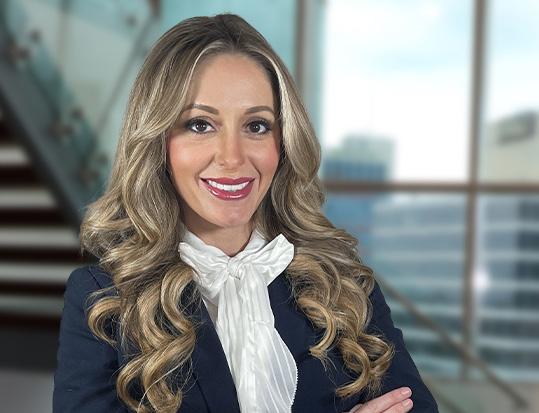
Becker 4001 Tamiami Trail N., Suite 270 Naples, FL 34103 mkaiser@beckerlawyers.com 239-552-3200 www.beckerlawyers.com
Michelle H. Kaiser, Esq.
Practicing Community Association/Condo/HOA Law
• Concentrates practice in condominium, homeowner, and cooperative associations including collections and foreclosures, vendor contracts, enforcing association covenants, and assisting association with management issues
Florence King, Esq.
Practicing Community Association/Condo/HOA Law
Related areas: Community Association Litigation & Covenant Enforcement, Corporate Representation
• Concentrates practice in condominium, homeowner, and cooperative associations including collections and foreclosures, vendor contracts, enforcing association covenants, and assisting association with management issues


111 N. Orange Avenue, Suite 1400 Orlando, FL 32801 bpatrie@beckerlawyers.com 407-875-0955 www.beckerlawyers.com

Elizabeth A. Lanham-Patrie, Esq.
Practicing Community Association/Condo/HOA Law
• Board-Certified Specialist in Condominium & Planned Development Law
• The Florida Bar Real Property, Probate and Trust Law Section — Condominium and Planned Development Subcommittee
• Member, Community Associations Institute and Orange County Bar Association
• Ninth Judicial Circuit Pro Bono Certificate of Recognition








Kaye Bender Rembaum
1200 Park Central Boulevard
South Pompano Beach, FL 33064
JLevin@KBRLegal.com 954-928-0680 www.KBRLegal.com


Kaye Bender Rembaum
1200 Park Central Boulevard South Pompano Beach, FL 33064
LMagill@KBRLegal.com 954-928-0680 www.KBRLegal.com

•
•
•
•
•
Jay S. Levin, Esq.
Mr. Levin has been a member of the Florida Bar since 2011, joining Kaye Bender Rembaum as an Associate Attorney in the Firm’s general civil litigation department in 2018. He was elevated to Senior Associate in mid-2023. Jay also has several years of experience practicing in all aspects of community association law.

Lippman Law Offices, P.A. 4767 New Broad Street Orlando, FL 32814-6405 mlippman@llopa.com 407-648-4213 www.lippmanlawoffice.com
Mark Lippman
A graduate of the University of Miami, Mark earned his JD with honors from Nova Southeastern and served the State of Florida in the offices of the Public Defender and State Attorney. In 2004 Mark opened the Lippman Law Office, which includes homeowner association and condominium association litigation and representation.
Lisa A. Magill, Esq., BCS
Ms. Magill is a member of the national College of Community Association Lawyers (CCAL), is Board Certified in Condominium & Planned Development Law, and serves as delegate to CAI’s Florida Legislative Alliance. She has been named “Legal Elite” by Florida Trend multiple times and frequently lectures on numerous community association-related topics.
Grade Saline Systems pay

Becker 4001 Tamiami Trail N., Suite 270 Naples, FL 34103 jmarkovich@beckerlawyers.com 239-552-3200 www.beckerlawyers.com
Joseph Markovich, Esq.
Practicing Community Association/Condo/HOA Law
• Concentrates practice in condominium, homeowner, and cooperative associations, including collections and foreclosures, vendor contracts, enforcing association covenants, and assisting association with management issues



Complete Water Control


Becker 1 East Broward Boulevard, Suite 1800 Ft. Lauderdale, FL 33301
kmattingly@beckerlawyers.com 954-987-7550 www.beckerlawyers.com


K. Joy Mattingly, Esq.
Practicing Community Association/Condo/HOA Law
Related areas: Collection & Foreclosures, Covenant Enforcement
• Board-Certified Specialist in Condominium & Planned Development Law
• Member, Broward County Bar Association
• Member, Commercial Law League of America
Steven H. Mezer, Esq.
Practicing Community Association/Condo/HOA Law, Business Litigation, Real Estate Related areas: Disaster Recovery, Corporate Representation, Covenant Enforcement
• Board-Certified Specialist in Condominium & Planned Development Law and Real Estate
• Executive Committee of the Florida Bar RPPTL Section Becker 1511 N. Westshore Boulevard, Suite 1000 Tampa, FL 33607 smezer@beckerlawyers.com 813-527-3900 www.beckerlawyers.com
• Member, College of Community Association Lawyers (CCAL)

Becker Regions Bank Building 111 N. Orange Avenue, Suite 1400 Orlando, FL 32801
bmcdowell@beckerlawyers.com 407-875-0955 www.beckerlawyers.com


Becker 4001 Tamiami Trail N., Suite 270 Naples, FL 34103 dmuller@beckerlawyers.com 239-552-3200 www.beckerlawyers.com

Brandon McDowell, Esq.
Practicing Community Association/Condo/HOA Law
• Concentrates practice in condominium, homeowner, and cooperative associations including collections and foreclosures, vendor contracts, enforcing association covenants, and assisting association with management issues
David Muller, Esq. Practicing Community Association/Condo/HOA Law Related areas: Disaster Recovery
• Board-Certified Specialist in Condominium & Planned Development Law
• Member of the Real Property, Probate and Trust Law
Section of the Florida Bar
• Member of the Community Associations Institute
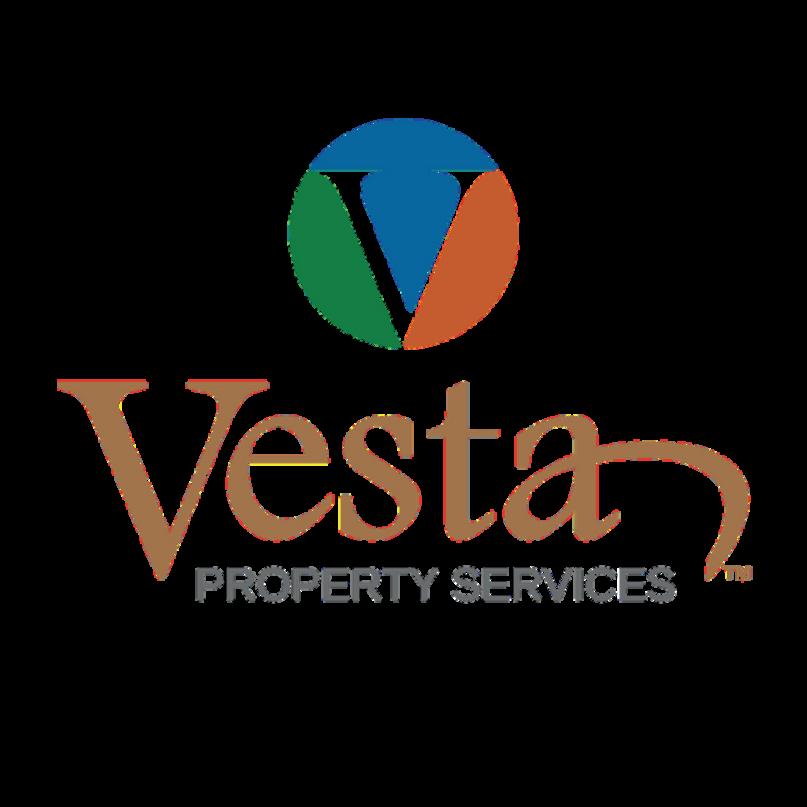





Becker
1 East Broward Boulevard, Suite 1800
Ft. Lauderdale, FL 33301
hperl@beckerlawyers.com 954-987-7550 www.beckerlawyers.com


Becker 625 N. Flagler Drive, 7th Floor West Palm Beach, FL 33401 mplatts@beckerlawyers.com 561-655-5444 www.beckerlawyers.com


Becker Paradise Village 348 Miracle Strip Parkway SW, Suite 7 Ft. Walton Beach, FL 32548 jroberts@beckerlawyers.com 850-664-2229 www.beckerlawyers.com

Becker
1 East Broward Boulevard, Suite 1800
Ft. Lauderdale, FL 33301
ksanmartano@beckerlawyers.com 954-987-7550
www.beckerlawyers.com
Howard J. Perl, Esq.
Practicing Community Association/ Condo/HOA Law Related areas: Disaster Recovery, Covenant Enforcement, Corporate Representation
• Board-Certified Specialist in Condominium & Planned Development Law
• Professional Community Association Manager (PCAM) designation from CAI
• Editor, Florida Community Association Professionals, Managers Report
• College of Community Association Lawyers, Fellow
Marty Platts, Esq.
Practicing Community Association/Condo/HOA Law Related areas: Corporate Representation
• Board-Certified Specialist in Condominium & Planned Development Law
• Florida Association of Women Lawyers
• American Bar Association


PeytonBolin PL 3343 West Commercial Boulevard, Suite 100 Fort Lauderdale, FL 33309 mauri@peytonbolin.com 954-316-1339 www.peytonbolin.com


Mauri Peyton, Esq.
Mauri is a Florida Real Estate Board-Certified attorney and is a cofounder of PeytonBolin, PL. He leads the association practice for PeytonBolin and focuses on termination issues for condominiums and appellate representation for condominiums, HOAs, and cooperatives. Clients say he is a master of taking the complex and breaking it down so everyone can understand the issues at hand.
Jeffrey A. Rembaum, Esq., BCS
Jay Roberts, Esq. Practicing Community Association/Condo/HOA Law Related areas: Corporate Representation, Disaster Recovery
• Board-Certified Specialist in Condominium & Planned Development Law
• Co-Editor, Becker’s Community Association Update (CUP) Newsletter
Karyan San Martano, Esq.
Practicing Community Association/Condo/HOA Law Related areas: Corporate Representation
• Editor, Florida Community Association Professionals, Managers Report
Palm Beach Gardens, FL 33410 JRembaum@KBRLegal.com 561-241-4462 www.KBRLegal.com


Becker 2525 Ponce de Leon Boulevard, Suite 825 Coral Gables, FL 33134 drogel@beckerlawyers.com 305-262-4433 www.beckerlawyers.com


Kaye Bender Rembaum
855 E. State Road 434, Suite 2209 Winter Spings, FL 32708 AS@KBRLegal.com 800-974-0680 www.KBRLegal.com
Mr. Rembaum is Board Certified in Condominium & Planned Development Law, has considerable experience representing Florida community associations, and is a Florida Supreme Court Certified Circuit Civil Mediator. He regularly provides legal representation to both new, established, and “underconstruction” associations. Every year since 2012, Mr. Rembaum was selected to the “Florida Super Lawyers.”
David H. Rogel, Esq. Practicing Community Association/Condo/HOA Law and Business Litigation Related areas: Collections & Foreclosure, Covenant Enforcement, Corporate Representation, Disaster Recovery, Appellate Litigation, and Insurance
• Board Certified Specialist in Condominium & Planned Development Law
• Chair, Becker’s Community Association Litigation Group
• “AV” Preeminent Rating, Martindale-Hubbell
Alan Schwartzseid, Esq., BCS
Alan Schwartzseid is a Firm Member, the Winter Springs office managing attorney, and Board Certified in Condominium & Planned Development Law. He assists Firm clients in all facets of community association law and works as an FLSC certified county/circuit court mediator. Mr. Schwartzseid is an active member of the Condominium Committee of the Real Property Section of the Florida Bar.


Give your residents the best experience possible, with fast, reliable internet and entertainment options. Xfinity’s future-ready technology delivers customized solutions designed for your unique community.
With the Xfinity network, residents can get a consistent, reliable connection, so everyone can work, stream, and game all at the same time.

The ultimate entertainment experience, with access to live TV, On Demand, sports, and their favorite streaming apps all in one place.


Kaye Bender Rembaum
1200 Park Central Boulevard South Pompano Beach, FL 33064
LSchwarzfeld@KBRLegal.com 954-928-0680 www.KBRLegal.com

Kaye Bender Rembaum
1200 Park Central Boulevard South Pompano Beach, FL 33064 SSmith@KBRLegal.com 954-928-0680 www.KBRLegal.com

Lauren T. Schwarzfeld, Esq.
Lauren Schwarzfeld is a senior associate attorney in the Firm’s construction law/complex litigation department. Mrs. Schwarzfeld focuses her practice on all aspects of litigation including covenant enforcement disputes, breach of contract claims, construction disputes, code enforcement actions, and other complex litigation matters from inception through appeal. She has been with KBR since 2016.
Stuart M. Smith, Esq.
Stuart Smith is a seasoned attorney with over 30 years of legal experience. Stuart has represented clients in a broad range of legal areas, including criminal law, creditor’s rights, foreclosure, and community association law. Today, Stuart focuses his practice on community association and creditor rights litigation, representing clients in both State and Federal Courts.
Ansbacher Law
400 North Ashley Drive, Suite 1900 Tampa, FL 33602
Paul.Terry@Ansbacher.net 813-214-7000 www.ansbacher.net

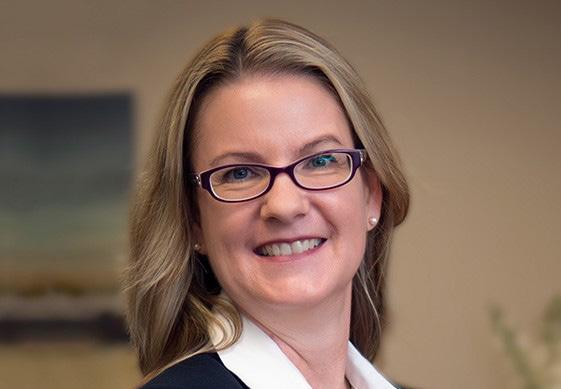
Becker
Regions Bank Building
111 N. Orange Avenue, Suite 1400 Orlando, FL 32801
rsevers@beckerlawyers.com 407-875-0955 www.beckerlawyers.com

3rd Avenue West, Suite 300 Bradenton, FL 34205 bswift@beckerlawyers.com 941-957-2990 www.beckerlawyers.com
Paul P. Terry, Esq.
Robyn M. Severs, Esq. Practicing Community Association/Condo/HOA Law
• Board-Certified Specialist in Condominium & Planned Development Law
• Member, Northeast Florida CAI–Legislative Action Committee
• Chair, Grievance Committee, The Florida Bar
Bryony Swift, Esq. Practicing Community Association/Condo/HOA Law
• Concentrates practice in condominium, homeowner, and cooperative associations, including collections and foreclosures, vendor contracts, enforcing association covenants, and assisting associations with management issues
Paul P. Terry Jr. joined the construction defect team at Ansbacher Law in 2024. He brings 40 years of experience assisting condominium and homeowner associations to resolve construction defect issues. Paul is cofounder and former partner at national construction defect law firm Angius & Terry. He is AV Preeminent-rated by Martindale-Hubble– its highest possible rating awarded to U.S. attorneys. n

We at the RGA companies wish to share with you some helpful tips to hopefully mitigate the damages that you may have experienced during these recent storms named Helene and Milton.
Rapid response contractors may rush in after the storm and offer to totally gut your home and/or business. The worry is they may make no effort to salvage any of the improvements. In a rush to dry out the structure and prevent mold, many occupants overreact and make poor decisions. The unfortunate reality is they have the tendency to deplete their insurance proceeds early on.
Larger national contractors offer financing so that the insured’s out of pocket expenses are minimized. That is why it is best, if possible, to have liquid assets put aside to hire smaller less expensive contractors. Often, the smaller companies cannot wait for insurance proceeds to kick in.
Architects and engineers such as RGA can be helpful in creating permit documents that are, in some cases, required before repairs can be made. We can also give advice as to whether or not the city/county will require damaged components to be upgraded to the current code adoption.
My advice is to take a deep breath and compare all options before making a decision as to who to select to help remove damaged contents.
It is important to be well informed before undertaking any repairs! Give us a call to discuss your specific situation: 813-334-8370. We will do our best to help you through this difficult time.
William Henry, PhD
1. Document the pre-storm and post-storm conditions and take as many pictures as possible. Even if the building and its contents have been damaged beyond recognition.
2. Though there is much emotion involved in seeing your valuables compromised, it is important not to make hasty restoration decisions that may prove later to be duplicative and very costly.
3. The tragedy of hurricane Ian is still unfolding as occupants discover that they have overspent on rapid response contractors who have taken advantage of the situation. With dwindling insurance proceeds, occupants have little left to save their ownership and preserve their equity.
4. The contractor that is selected to respond rapidly and remove contents and disinfect the building interiors may not be the best contractor to actually rebuild later.



BY REBECCA N. CASAMAYOR, ESQ., KYLE ALONSO, ESQ., AND KRISTEN E. FERRER, ESQ.
As of July 1, 2024, condominium associations are required to attach proposed contracts to board meeting notices. This new requirement is intended to increase transparency and ensure that association members are fully informed about the decisions being made by their board of directors. However, the implementation of this new legislation is likely to pose some practical challenges for condominium associations.

Kyle A. Alonso, senior associate at Haber Law, specializes in civil litigation and community association law, serving as general counsel to condominiums, homeowners’ associations, and businesses. He offers a pragmatic approach to resolving legal issues efficiently. Kyle holds a J.D. from the University of Miami (2015) and a bachelor’s degree in finance from Florida State University (2012). His legal career blends courtroom and boardroom experience, emphasizing creative problem-solving. Outside of law, Kyle enjoys art, music, and sports, bringing a dynamic perspective to his practice.


Kristen E. Ferrer focuses her practice on community association law, real estate, and commercial litigation. She advises condominium and homeowner associations on collections, foreclosures, elections, vendor agreements, arbitration, and enforcement of governing documents and Florida regulations. Ms. Ferrer also represents buyers, sellers, and private lenders and has served as a settlement agent in real estate transactions. She earned her B.S. in criminal justice and sociology from the University of Central Florida and her J.D. from the University of Miami, where she served on the Business Law Review
Rebecca Newman Casamayor is an experienced litigator specializing in complex business litigation, breach of contract cases, construction law, and community association law. She represents condominium and homeowners’ associations on issues like collections, foreclosures, disputes, and compliance with governing documents and the Florida Condominium Act. Ms. Casamayor also handles contract and business disputes, appeals, probate litigation, and shareholder derivative lawsuits. With her extensive expertise, she regularly advises clients on matters involving vendor and unit owner disputes and the enforcement of association rules and bylaws.
For more information, visit haber.law



The actual text of this new legislation, codified in Section 718.112(2) (c)(3), is as follows (emphasis added):
If an agenda item relates to the approval of a contract for goods or services, a copy of the contract must be provided with the notice and be made available for inspection and copying upon a written request from a unit owner or made available on the association’s website or through an application that can be downloaded on a mobile device.
Condominium associations should keep in mind the following when implementing this new requirement:
1. “Relates to” Language—Notably, the statute is phrased to require attaching a contract to the meeting notice whenever “an agenda item relates to the approval” and not just when an approval vote is being taken. This could be read to mean that whenever discussion of a proposed agreement or project is noted on the agenda, even if only a proposal or basic term sheet has been provided, it may be necessary to attach those materials to the meeting notice.
2. Timing of Contract Approval—One significant issue up for debate is the timing of when to attach the contract to the meeting notice. One approach argues that it is acceptable to attach a draft contract to the meeting notice for approval of the business terms at the meeting, leaving negotiation of the contract’s legal terms




and language to occur later. Others argue that the contract attached to the meeting notice must be in its final form, ready for execution, with no further changes made after approval at the meeting. The latter is the more conservative approach and the safer practice to ensure compliance with the statute.
3. Electronic Copies—Some interpretations of the statute suggest that simply making the contract available on the association’s website or via a QR code might suffice as attaching it to the meeting notice.
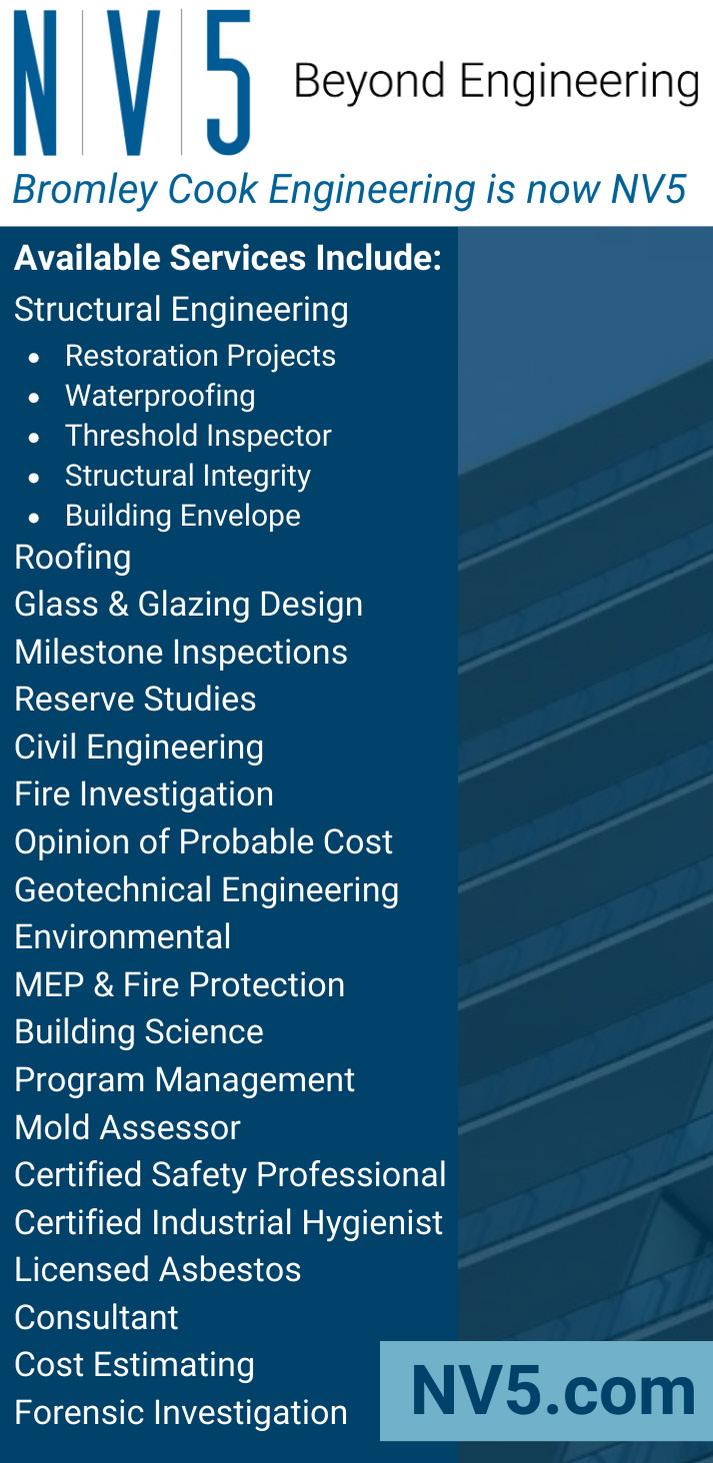

However, a closer reading of the statutory language implies that the contract must be physically provided with the meeting notice and made available through the standard records request procedure or on the website.
4. Document Length and Complexity—Contracts can be lengthy and complex. Attaching entire contracts to meeting notices, especially those meeting notices that must be mailed, can result in significant administrative burdens and expenses, particularly for associations with many owners. The complexity of some contracts may also make it difficult for owners to fully understand the terms without proper legal or professional guidance. Note that there are no limitations or exceptions (such as a monetary threshold) to the types of goods or services contracts covered by this rule.
5. Confidentiality Concerns—Some contracts may contain sensitive, confidential, or privileged information. Associations must carefully consider how to handle these situations while also complying with the new statutory requirement. In cases where confidentiality or privilege is an issue, it may be necessary to seek legal advice on how to proceed.
6. Increased Scrutiny—The new requirement is likely to lead to increased scrutiny from owners, who now have greater access to the details of contracts being considered by the board. Associations should be prepared for more questions and pushback from owners who may have concerns about the terms of certain agreements, especially if there are ambiguities or unfavorable provisions in a contract still in draft form—another point in favor of associations proceeding with approval only once the final version of the contract can be attached to the meeting notice, which would ensure that all business negotiations and legal review have been completed.
To ensure compliance with the new requirements of §718.112(2)(c)(3), condominium associations should consider the following tips:
1. Preapproval Meetings—If a contract is being discussed at a meeting but is not yet up for a formal approval vote, associations should still consider attaching to the meeting notice any proposal or term sheet received thus far. This will give members more information and context on what is being considered.
2. Legal Review/Early Planning—Engage legal counsel early in the contract negotiation process to ensure that all terms are fully negotiated and reviewed in a timely manner to facilitate attaching the final version of the contract to the meeting notice. Early attorney involvement will minimize last-minute issues and changes to the contract that would delay or interfere with associ-

ations’ compliance with the statute.
3. Avoid Ratification— Absent an emergency, associations should try to avoid post-execution ratification votes to approve contracts (i.e., when a contract is approved and signed by the board, and then its approval is presented for ratification at the next board meeting).
4. Comply with Actual Posting—Ensure that the contract is physically posted with a 48-hour meeting notice or physically mailed with a 14-day notice. While including a link or QR code that directs owners to an online version of the contract is helpful, doing so may be subject to challenge. Attaching the actual contract, alongside a link or QR code for convenient access, will cover all bases.
5. 48-Hours Meeting Notice—Whenever possible, aim for the board to approve contracts at a regular board meeting on 48 hours’ notice, which can significantly reduce costs associated with mailing a 14-day special meeting or member meeting notice. If a 14-day mailing is required based on the type of contract, governing documents, or vote being taken, encourage owners to consent to electronic delivery of notices, which can help minimize the administrative burden and costs of mailing physical copies of lengthy contracts.
6. Encourage Member Participation—Create opportunities for unit owners to ask questions and provide feedback about the contract up for approval. For example, consider discussing the terms of the contract at an earlier board meeting or “townhall” meeting so that any constructive suggestions can be incorporated into the final version of the contract before it is presented for an approval vote at a later meeting. Alternatively, if discussion of the contract terms is taking place at the approval meeting itself, consider tabling approval and resetting the meeting to address any valuable suggestions from members.
The new requirement to include contracts with meeting notices under §718.112(2)(c)(1) represents a significant yet sometimes burdensome step towards increased transparency in condominium governance. By carefully navigating these changes and adopting best practices with legal counsel, associations can ensure compliance while maintaining a positive and transparent relationship with their unit owners.
As these and more legislative updates continue to evolve, associations should remain informed and consult with legal counsel to ensure they are meeting all statutory obligations while effectively managing their communities. Haber Law, LLP, has long served as a trusted legal counsel to condominiums throughout South Florida and is eager to assist associations in achieving compliance with constant changes in the legal landscape. n


BY JOSE LUIS BALOYRA
HB 1021, a substantial overhaul of the Florida Condominium Act commonly referred to as “Condo 3.0,” was signed by Governor Desantis and became effective July 1, 2024. While many of the changes to the Act were objectively necessary (such as the new heightened board member education requirements, the requirement of an association with more than 10 units to have board meetings not less than quarterly, and the mandatory funding of reserves for all structural components), many provisions of the bill pertaining to records requests, meeting notices, member participation at
board meetings, and the pooling of structural-related reserves are vague and confusing. After the passage of SB 4-D in 2022 (adding section 553.899 regarding the milestone inspections), SB 154 was introduced the following year to provide further clarity. The sponsors of HB 1021 in the House of Representative will likely introduce another bill this year to further revise the Condominium Act (“Condo 4.0”) and hopefully address the various issues created by Condo 3.0.
The Condominium Act now requires that in response to a written request to inspect records, the association must simultaneously provide the requester a checklist of all records made

Jose Baloyra provides counsel to condominium and homeowner associations and has been involved in all aspects of community association law. His work with these communities includes covenant enforcement, document review and drafting, analysis and review of bank loans, and general guidance to boards and managers on the statutory and documentary guidelines for the ongoing administration of their association. For more information call 305-260-1021, email jbaloyra@ beckerlawyers.com, or visit www.beckerlawyers.com.
available for inspection and copying. The checklist must also identify any of the association’s official records that were not made available to the requester and to maintain the checklist provided in the official records of the association for seven years. The Act also provides that if the requested records are posted on an association’s website or are available for download through an application on a mobile device, the association may fulfill its obligations by directing all persons authorized to request access to the website or the application.
However, in so doing the association apparently must still provide the checklist for the records request. A simple solution would be to eliminate the requirement to provide a checklist if the records are electronically


sent to the requester or if the association directs the requester to the association’s website or an application for a mobile device where the records are posted or may be downloaded.
A newly added subparagraph to F.S. 718.112(c) (which governs board meetings) provides that meeting notices “…in which regular or special assessments against unit owners are to be considered must specifically state that assessments will be considered and provide the estimated cost and description of the purposes for such assessments.” The subparagraph then provides that if an agenda item pertains to the approval of a contract, a copy of the contract must be provided with the notice and must be made available for inspection and copying upon a written request from a unit owner, on the association’s website, or through an application that can be downloaded on a mobile device.
Thus, does the requirement to provide the contract with the meeting notice pertain only to contracts being approved at a meeting where regular or special assessments are being considered or to any meeting where a contract is being considered for approval? How does the association provide a copy of the contract? While this new requirement to provide contracts with the meeting notice is beneficial to the unit owners and will enable them to be informed and ask questions about the contract at the meeting, many contracts are lengthy, and the cost of copying and mailing it would be prohibitively expensive. The most reasonable approach is to provide a copy of any contract being brought for approval at any meeting or make the same available with a hyperlink to the association’s website or application in the meeting notice. A simple clarification to this subparagraph allowing for provision of the contract via a hyperlink is necessary.
On the subject of member participation at board meetings, F.S. 718.112(2)(c) was revised to require (in a residential condominium of more than 10 units) the board of directors to meet at least once each quarter and for the meeting agenda to include “an opportunity for members to ask questions of the board.” The text of this subparagraph was further modified to provide that the right of unit owners to attend board meetings “…includes the right to speak at such meetings with reference to all designated agenda items and the right to ask questions relating to reports on the status of construction or repair projects, the status of revenues and expenditures during the current fiscal year, and other issues affecting the condominium.”
This language leaves open the question of whether the requirement for the “mandatory questions segment” of board meetings must only be done once per quarter (as suggested by the first sentence) or at every board meeting (as suggested by the second sentence). Interestingly, there is no requirement in the law that questions must be answered, and unit owner questions can presumably be taken under advisement if further research is required. Further, how can a board be expected to answer any question posed as to “other issues affecting the condominium”? A solution to the confusion caused by this amended subparagraph is to require the board to answer these open-ended questions at the mandatory quarterly meetings only and to remove the requirement to respond to questions as to “any other issues affecting the condominium.” Unit owners
THE MOST REASONABLE APPROACH IS TO PROVIDE A COPY OF ANY CONTRACT BEING BROUGHT FOR APPROVAL AT ANY MEETING OR MAKE THE SAME AVAILABLE WITH A HYPERLINK TO THE ASSOCIATION’S WEBSITE OR APPLICATION IN THE MEETING NOTICE.
already have the right under subsection (1) to petition the board (provided 20 percent join in the petition) to address an item of business.
Finally, associations existing on or before July 1, 2022, are in a mad scramble to obtain their structural integrity reserves (SIRS) study by the December 31, 2024, deadline and to adopt budgets which fully fund reserves for all of the structural components. However, while F.S. 718.112(f) allows for the pooling of traditional (or nonSIRS related) reserve items, it does not address the pooling of SIRS reserves. Another practical solution is to amend this paragraph to allow for the pooling of association reserve accounts for two or more required SIRS components. n

We’ve Got You – And Your Car –COVERED.
Protect your vehicles from Florida’s harsh environment with Mullet’s Aluminum’s award-winning carports. Ideal for condominium, apartment and commercial properties, our structurally superior, site-specific systems are engineered for long-term performance, reducing vehicle heat and enhancing interior comfort.
With over 45 years of experience in manufacturing and installation, Mullet’s Aluminum is one of the largest architectural aluminum manufacturers in Florida - so don’t worry, we’ve got you covered. .
Call for a free quote or visit our website.
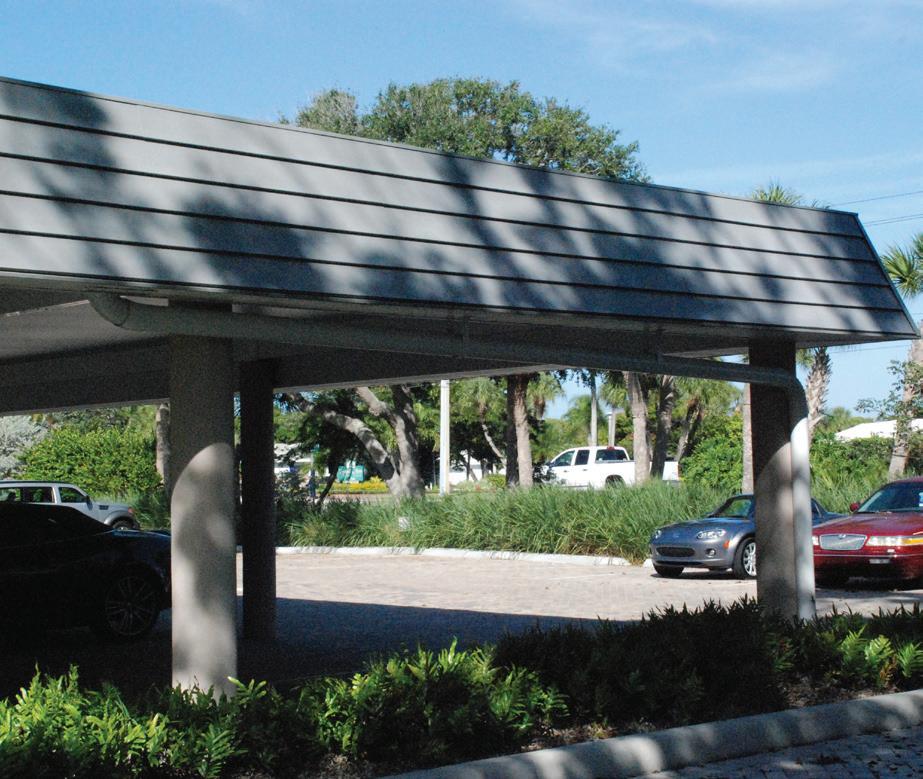


REMBAUM'S
Less Known (Yet Equally Important) Reasonable Modification Request
BY DANIELLE BRENNAN, ESQ., BCS
As directors and managers of community associations, it is likely that you are very familiar with disability-related requests for reasonable accommodations under the Fair Housing Act, particularly requests for accommodation to pet restrictions so that a disabled person may have an assistance animal within the community. However, the failure to grant reasonable accommodations is not the only form of disability discrimination under the Fair Housing Act.
The Fair Housing Act also makes it unlawful for a housing provider to refuse to permit, at the expense of the disabled person, reasonable modifications of existing premises occupied or to be occupied by such person if such modifications may be necessary to afford such person full enjoyment of the premises.
For example, reasonable modifications may include widening doorways to make rooms more accessible for persons in wheelchairs, installing grab bars in bathrooms, lowering kitchen cabinets to a height suitable for persons in wheelchairs, adding a ramp to make a primary entrance accessible for persons in wheelchairs, or altering a walkway to provide access to a common use area.
In order for an individual to be entitled to a reasonable modi-

M. BRENNAN, FIRM MEMBER, KAYE BENDER REMBAUM
Danielle M. Brennan is a board-certified specialist in condominium and planned development law by the Florida Bar. Mrs. Brennan is a firm member in the Palm Beach Gardens’ office and joined Kaye Bender Rembaum as an associate attorney in April 2013. She assists community association clients (including residential and commercial condominium associations, homeowners’ associations, cooperatives, and commercial associations) and developer clients with all aspects of community association establishment and operations, including corporate filings and mergers, governing document drafting and amendments, contract drafting and negotiations, membership meeting and board meeting operations, fair housing matters, land use and zoning matters, and covenant enforcement. For more information call 561-241-4462 or visit www.kbrlegal.com
fication under the Fair Housing Act, the individual must first make a request for a reasonable modification. An individual makes a reasonable modification request whenever he/she makes clear to the association that he/she is requesting permission to make a structural change to the premises because of his/her disability. Although the association may adopt and use specified forms and procedures for processing modification requests, the association cannot refuse a request because the individual does not use

the specified form or follow the established procedures. All the individual needs to do is make the request, orally or in writing, in a manner that a reasonable person would understand to be a request for permission to make a structural change because of a disability.
As part of the request, the individual must (i) establish that he/she is disabled (i.e., the person has a physical or mental impairment that substantially limits one or more major life activities) if the disability is not already known to the association or readily apparent; (ii) describe the type of modification requested; and (iii) explain the relationship, or nexus, between the requested modification and the individual’s disability.
The association is required to provide a prompt response to a reasonable modification request. An undue delay in responding to a reasonable modification request may be deemed a failure to permit a reasonable modification. There is no clarity as to what constitutes a “prompt response” or “undue delay” for a reasonable modification. However, if we are to borrow from guidance from the U.S. Department of Housing and Urban Development regarding reasonable accommodations under the Fair Housing Act, then a response should be issued within ten days.
The failure to permit a person with a disability to make a reasonable modification or the failure to promptly respond to a request for a reasonable modification is deemed discrimination under the Fair Housing Act. If discrimination is found to have occurred, the association may be subject to an injunction, forcing the association to permit the requested modification, and an award for damages, which may include punitive




































damages. In addition, violations of the Fair Housing Act are one of the few instances in which individual board members may be held personally liable for such violations. Given the potential for liability and the many factors which must be considered upon receiving such a request, the board must carefully evaluate a request for a reasonable modification in a timely manner and on a case-by-case basis.
The association cannot condition its approval of the requested modification upon the payment of a security deposit or the purchase of additional insurance and cannot insist that a particular contractor do the work. However, the association can require that the unit owner obtain any building permits needed to make the modification and that the work be performed

























AS TO THE MODIFICATION ITSELF, THE DISABLED PERSON IS RESPONSIBLE FOR DETERMINING THE TYPE OF MODIFICATION AND FOR PAYMENT OF THE COSTS OF THE MODIFICATION. GENERALLY, THE ASSOCIATION CANNOT INSIST ON AN ALTERNATIVE MODIFICATION, PARTICULARLY IF THE REQUESTED MODIFICATION IS TO THE INTERIOR OF THE UNIT.
in a workmanlike manner. From a practical perspective, there will need to be coordination between the association and the unit owner, for example, to obtain whatever permits may be required and to schedule the work, given that the modification may be made to the common areas owned by the homeowners’ association or the common elements controlled by the condominium association.
As to the modification itself, the disabled person is responsible for determining the type of modification and for payment of the costs of the modification. Generally, the association cannot insist on an alternative modification, particularly if the requested modification is to the interior of the unit. However, if the requested modification is to the common area or common elements, the association can propose an alternative modification (e.g., different type of modification, different placement, different design, etc.). However, if the association’s proposed alternative modification costs more than the modification requested by the disabled person, the association will be required to pay the difference.
Once the modification is installed, whether the disabled person or the association will be responsible for the upkeep and maintenance of the modification will depend upon where the modification is located and who is able to use the modification. As to modifications made to the common areas or common elements, if the modification is used exclusively by the disabled person, such person is responsible for the upkeep and maintenance of the modification. However, if the modification is installed on the common areas or common elements which are normally maintained by the association and may be used by others, the association is responsible for the upkeep and maintenance of such modification under the Fair Housing Act.
Although some modifications to the interior of the unit must be restored if requested by the association when the disabled person vacates the unit, the association cannot require the disabled person to have a modification made to the common areas or the common elements removed and area restored.
Additionally, the Fair Housing Act controls over the provisions of the

SIMPLY ASKING THE WRONG
CAN CREATE LEGAL LIABILITY FOR AN ASSOCIATION, SUCH AS ASKING FOR ADDITIONAL INFORMATION REGARDING A PERSON’S DISABILITY WHEN THE DISABILITY IS READILY APPARENT. BECAUSE THERE ARE SO MANY WAYS TO MISSTEP IN THIS ARENA, SIGNIFICANT CAUTION IS ADVISED.
governing documents of the association and any requirements of Chapter 718, Florida Statutes. For example, even if the modification is a material alteration or substantial addition to the common elements or association property subject to membership approval under a community association’s governing documents and/or section 718.113(2)(a), Florida Statutes, such membership approval would not be required for a reasonable modification under the Fair Housing Act. However, the board still must approve the requested modification at a properly noticed board meeting, and the minutes of such meeting must reflect the board’s approval of same.
Regarding property insurance for modifications to a condominium’s common elements, section 718.111(11)(f), Florida Statutes, requires that the condominium association carry adequate property insurance for primary coverage of all portions of the condominium property, only excluding from such coverage the following which is the responsibility of the unit owner: 1) all personal property within the unit or limited common elements and 2) floor, wall, and ceiling coverings; electrical fixtures; appliances; water heaters; water filters; built-in cabinets and countertops; and window treatments (including curtains, drapes, blinds, hardware, and similar window treatment components); or replacements of any of the foregoing which are located within the boundaries of the unit and serve only such unit. Therefore, if modifications are not within the unit or the limited common elements serving the unit, the condominium association is responsible to carry property insurance for the modification and will be responsible for the reconstruction, repair, or replacement of the modification if it is damaged by an insurable event.
Finally and importantly, because there are so many ways for a board to create legal liability when handling reasonable modification and/or reasonable accommodation requests, the board and manager should absolutely involve the association’s attorney, particularly if the board is going to request additional information or deny the request. Simply asking the wrong question can create legal liability for an association, such as asking for additional information regarding a person’s disability when the disability is readily apparent. Because there are so many ways to misstep in this arena, significant caution is advised. n

With over 25 years of experience with reserve studies and insurance appraisal, we service condominium associations, homeowner associations, businesses, clubs, and organizations. Let a team of experts and quality customer service provide you with solutions and strategies you are looking for.
• Structural Integrity Reserve Studies (SIRS)
• Traditional Reserve Studies
• Insurance Appraisals (Replacement Cost Valuations)
• Milestone Inspections
• Florida-based and Family owned

Go to our website to download your FREE copy of Anastasia’s new book!
Please contact us to discuss how we can be of service to your association!
The Reser ve S tud y, Milestone & Insurance A pprais al E x pe
With over 25 year s of experience with appraisal, we ser vice condominium a businesses , clubs , and organizations
customer ser vice provide you with solu
• Tradi tional Reser ve S tudies
• Milestone Inspec tions
• Florida-based and Family owned
• S truc tural Integri t y Reser ve S tudies
• Insurance Appraisals (Replacement

Please contact us to discuss how we
“By failing to prepare, you


“By failing to prepare, you are preparing to fail.” — Benjamin Franklin





Only one provider is nationally known and never locally out of reach.

You might not see us on a billboard or hear about us on the radio because we invest in providing concierge-level service to each community we serve.
Dedicated Account Management and Property Support Specialists physically in your community.
Assigned technicians to provide a familiar face who knows your property, your services, and your individual needs.
Locally based full-time employees in our contact centers—no outsourcing, no contracting—you’ll be doing business with your neighbors.
Continuous on-demand education about your products, their features and benefits so you can get the most out of your services.



















We are with you through the process and will continue with you throughout our partnership.

Our dedicated, local support is there for you every step of the way to provide customized solutions to meet your community’s unique needs.













In Florida, we will always be the first, fastest, and 100% fiber






Continuing to expand our fiber footprint throughout North Florida, Central Florida, and the Suncoast.







































We’ve put the decision makers, service professionals, and property support specialists right in your backyard. Let’s get in touch and talk about how to future-proof your property with Fision Fiber Optics by Hotwire Communications.

































BY ROBERTO C. BLANCH
mending a community association’s governing documents can be a daunting task for many associations, including some that direly need updates to their declarations and bylaws. For many such communities the best approach is to heed the advice that my colleague Lindsey Thurswell Lehr shared in her Miami Herald column a couple of years ago and start by amending their amendments process, then implementing all the important changes they have been forsaking.
Because governing documents are originally created by a community’s developer, they can include outdated provisions that communities may want or need to address. Those problematic edicts often begin with the amendment process itself, which for many older communities requires a vote of the unit-owner membership with a minimum approval of two-thirds or even three-quarters of all the owners for an amendment to be adopted.
Many communities have been unable to achieve votes from two-thirds of their unit owners at all their prior annual or special membership meetings, including the meetings at which board member elections are conducted. For those associations, obtaining votes of approval from two-thirds or 75

ROBERTO C. BLANCH, SHAREHOLDER, SIEGFRIED RIVERA
Roberto C. Blanch is a shareholder with the South Florida law firm of Siegfried Rivera and one of the most prolific contributors to its Newsroom blog at www.SiegfriedRivera. com/blog. He is board certified as an expert in community association law by the Florida Bar, and he represents associations throughout South Florida. The firm maintains offices in Miami-Dade, Broward, and Palm Beach Counties, and its 50 attorneys focus on community association, real estate, construction, and insurance law. Roberto can be reached at 800-737-1390 or via email at RBlanch@SiegfriedRivera.com, or visit www.SiegfriedRivera.com
percent of all their members would be extremely difficult, so they often just give up on implementing important or desired changes and make do as best they can.
Some associations try to circumvent the issue by foregoing the amendment of the provisions contained in the association’s declaration or bylaws and instead enacting new rules which typically require just a simple majority vote of the directors. However, by not taking a vote to formally amend the provisions of the declaration or bylaws, directors can expose an association to liability or claims in court from owners challenging unrecorded restrictions and unauthorized modifications.
Optimize Security for a Successful New Year
The onset of a new year offers a fresh start to hone your community vision.
As you prepare for the months ahead, consider these questions to gauge the effectiveness of your security plan:
1. Are there specific problem areas?
2. What level of service is needed or desired for the community?
3. What is the budget?
4. What is the ultimate goal?
With these ideas in mind, Envera can help you bring your vision to life.

Instead, as Lindsey suggested in her July 2022 column that can be found in our firm’s Newsroom blog at www.SiegfriedRivera.com/blog, such associations should pull out all the stops to get out the vote and amend their amendments process to lower the threshold for future changes to their governing documents. For instance, changing the requirement for passage of an amendment to a majority of all owners, or even a majority of the votes cast at a meeting of the owners at which a quorum is achieved (whether in-person, online, or by proxy), may thereafter simplify effectuating future changes.
There are a number of amendments associations tend to consider, including whether to add or remove provisions known as the “Kaufman language” to automatically incorporate all future changes to Florida’s applicable community association statutes into their declaration and bylaws.
Another common change is modifying the required number of directors for the association. Small communities that have difficulty filling vacancies on their board tend to consider scaling down to only three members if their documents call for five or seven, while large communities with active and involved owners often wish to expand the size of their board to allow for greater participation.
Governing document provisions pertaining to annual meeting dates may also require updating. Many documents specify a specific day (e.g., the second Saturday in January) for the community’s annual meeting. Associations may wish to update their meeting date to provide greater scheduling flexibility or to better align with their fiscal year or when the most owners are in town. An amendment to enable the board to select a




new meeting date can offer a permanent solution.
Some associations may wish to change the start and end dates of their fiscal year for accounting purposes, and that would be another simple fix they could implement. Other common changes include those addressing parking, short-term rentals, and amenity use rights.
With the help of highly qualified and experienced legal counsel, associations can overcome both owner apathy and potential opposition to pass an amendment to simplify their amendments process. As Lindsey noted, attorneys can guide associations through a process that combines online voting, the effective use of proxies, and a canvassing/ meeting/voting window that can last up to 120 days.
Our firm highly encourages

WITH THE HELP OF HIGHLY QUALIFIED AND EXPERIENCED LEGAL COUNSEL, ASSOCIATIONS CAN OVERCOME BOTH OWNER APATHY AND POTENTIAL OPPOSITION TO PASS AN AMENDMENT TO SIMPLIFY THEIR AMENDMENTS
PROCESS. AS LINDSEY NOTED, ATTORNEYS CAN GUIDE ASSOCIATIONS THROUGH A PROCESS THAT COMBINES ONLINE VOTING, THE EFFECTIVE USE OF PROXIES, AND A CANVASSING/ MEETING/VOTING WINDOW THAT CAN LAST UP TO 120 DAYS.
communities that have been struggling to comply with outdated provisions in their recorded governing documents to fix this issue once and for all. By focusing on an amendment that will effectively make future amendments possible to achieve, associations will be able to do away with outdated provisions and enact changes that reflect the community as it is today. n





BY DANIA S. FERNANDEZ, ESQ.
n Florida, homeowners’ associations (HOAs) and condominium associations must collect assessments to maintain their properties and provide services. However, not all residents pay on time or in full, creating financial challenges that can impact the entire community.
Establishing a clear, effective collections policy is essential to ensure that associations can maintain their financial health and continue serving their resi-
dents. This article provides an overview of the steps needed to create a collections policy for associations in Florida, using the guidance of Florida Statutes 718 and 720, which govern condominium and homeowners’ associations, respectively.
1. Understand Legal Requirements
Florida Statutes 718 and 720 set specific guidelines for associations in collecting assessments. Florida Statute 718 applies to condominium associations while Statute 720 applies to HOAs. Both statutes give associations the authority to impose assessments on members and pursue collection actions when members default.

For those seeking expert legal guidance tailored to community associations, Dania S. Fernandez & Associates PA offers profound insights and support. Our expertise ensures that your technological implementations are effective and compliant with relevant regulations. Dania S. Fernandez is a seasoned attorney with 24 years of experience in community association law. She provides comprehensive legal counsel and educational programs to the board of directors, helping them navigate the complexities of community management and governance. Dania offers guidance on a wide range of issues, from collections and day-to-day operational matters to complex litigation. Known for her dedication to client education and proactive legal strategies, Dania is a trusted advisor in her field. To discover how we can assist your community association, visit www.daniafernandez.com, send an email to dania@dsfpa.com, or call 305-254-4492.
• Notification Requirements: Under both statutes, associations must provide residents with written notice before taking any legal action to collect overdue assessments. Florida Statutes 718.116 and 720.3085 detail the procedure for notifying residents, including a 30-day notice period, before escalating the collections process.



• Interest and Late Fees: Both statutes allow associations to impose interest and late fees on overdue assessments, but the exact amounts and rates must comply with statutory limits and the governing documents of the association. Interest may be imposed according to Florida statute, regardless of whether it is stated in the governing documents; however, late fees can only be imposed if explicitly allowed in the governing documents.
2. Define Collection Timelines and Escalation Procedures
A well-defined timeline helps ensure that residents are aware of when their payments are due and when they may face penalties for late payments. An effective timeline should include the following:
• Clearly state when assessments are due and when they are considered late.
• Specify when late fees and interest will apply and provide details about these fees.
• Outline the stages of escalation, such as sending reminder notices, issuing formal demand letters, and eventually pursuing legal action if necessary.
Florida statutes provide associations with some flexibility in offering payment plans for delinquent residents. While not required, offering a payment plan can be a proactive way to help residents facing temporary financial difficulties stay in good standing. However, it’s essential to ensure that any payment plan offered to one owner is available to
A WELL-DEFINED TIMELINE HELPS ENSURE THAT RESIDENTS ARE AWARE OF WHEN THEIR PAYMENTS ARE DUE AND WHEN THEY MAY FACE PENALTIES FOR LATE PAYMENTS.
all, avoiding potential claims of selective enforcement against the association. Clearly define the terms of payment plans in the policy, including the following:
• Duration and installment amounts
• Consequences for defaulting on the plan
• Restrictions, such as a limit on the number of payments plans a resident may request over a certain period
4. Document All Collection Actions
Document each step taken.
• Copies of notices sent to the resident, including dates and content
• Records of communications with the resident, such as emails, phone calls, or letters
• Documentation of any fees or interest charged
When crafting and enforcing a collections policy, associations should be aware of several common pitfalls:
1. Failing to Follow Governing Documents and Statutes Governing documents, the declaration, bylaws, and articles of

incorporation dictate specific requirements for the association’s operations. If an association deviates from these rules, it may face legal consequences. Additionally, failing to adhere to Florida Statutes 718 and 720, particularly in terms of notification and escalation procedures, can result in the association’s inability to collect assessments legally.
Consistency is key in enforcing any collections policy. Applying the rules inconsistently or showing favoritism can lead to disputes and even legal challenges. All residents must be treated equally, and the collections process should be applied uniformly to ensure compliance with fair debt collection laws.




3.
Residents are more likely to comply when they understand the collections policy and the consequences of nonpayment. Failing to communicate the policy clearly and openly can lead to confusion, misunderstandings, and resentment. Ensure that the policy is easily accessible to residents, either through the association’s website or a resident portal, and provide regular reminders, especially when policy changes occur.
Delaying collection actions can create significant financial strain for the association, as overdue assessments may accumulate, affecting cash flow. Implement a proactive approach by promptly issuing late notices

and enforcing the collections policy according to the established timeline. Delays may also impact the association’s legal standing in collecting the debt, particularly if the statute of limitations for collections actions expires. Keep in mind it is easier to collect $1,000 than $10,000. Don’t wait until the debt accumulates to start collection.
Clear, consistent communication is essential to ensure residents understand the collections policy and its importance to the association’s financial health. Hold a board of directors meeting open to all members, allowing for an open discussion on the collections policy before the board formally moves to approve it. Once approved, provide copies of the policy to all members.
1. Introduce the Policy with a Written Notice
When the collections policy is first implemented or updated, attach a copy of the collections policy with the formal notice of a board of directors meeting for discussion. Provide contact information for a designated association representative in case residents have questions or concerns.
2. Offer Resources and Information Sessions
Provide educational resources on why timely assessments are critical to the community’s well-being,



We Make it Simple
• Building Re-Certification
• Milestone Inspections
• Structural Integrity Reserve Study (SIRS)
• Concrete Restoration
• Roofing Consultant
• Forensic Engineering
(954) 399-2075 • www.simplerengineer.com


explaining how assessments fund essential services and amenities.
3. Provide Regular Reminders and Policy Updates
Remind residents of the collections policy at regular intervals, such as quarterly newsletters, email updates, or a dedicated section on the association’s website. When changes to the policy occur, provide advance notice with a summary of the changes and a clear explanation of how the new terms affect residents.
4. Make the Policy Accessible and Easy to Understand
Avoid legal jargon when communicating the policy. Instead, use simple language that all residents can understand.
For Florida associations, establishing an effective collections policy is essential for maintaining financial stability and providing services to the community. By following the steps outlined above and adhering to Florida Statutes 718 and 720, associations can create a clear, legally compliant collections policy that minimizes financial losses from unpaid assessments. Avoiding common pitfalls, such as inconsistent application and delayed collection actions, and fostering open communication with residents can improve compliance and promote a positive community atmosphere. With a well-designed collections policy, associations can protect their financial health while treating residents fairly and consistently. n


BY MICHAEL J. GELFAND, ESQ.
Pursuing delinquent assessment liens is becoming more difficult for Florida community associations. The Florida Supreme Court amended litigation procedures, including foreclosures, that will require Florida associations to gather and disclose substantially more information than previously required.
This will increase the burden upon associations, their management, and their counsel. The new procedures likely will also delay proceedings.
To avoid being caught off guard and having to play catch up, which is much more timeconsuming and expensive than preparing in advance, what can you do now to do it right and to limit frustration, delays, and more fees?
Though it sounds fundamental, the association must ensure that the association’s assessments have been properly adopted. While it may be surprising, associations, especially those that “have always done it this way,” may find themselves having to do it all over again.
These pre-litigation steps may help to avoid a “do over.” Simply, an association must prove that assessments were adopted if the association is to claim that assessments are delinquent.
The first step begins with a

MICHAEL J. GELFAND, ESQ., SENIOR PARTNER, GELFAND & ARPE, P.A.
Michael J. Gelfand, Esq., the senior partner of Gelfand & Arpe, P.A., emphasizes a community association law practice, counseling associations and owners how to set legitimate goals and effectively achieve those goals. Gelfand is a dual Florida Bar board-certified lawyer in condominium and planned development law and in real estate law, a certified circuit and county civil court mediator, a homeowners’ association mediator, an arbitrator, and parliamentarian. He is a past chair of the Real Property Division of the Florida Bar’s Real Property, Probate & Trust Law Section, and a Fellow of the American College of Real Estate Lawyers. Contact him at ga@gelfandarpe.com or 561-655-6224.
copy of a proper notice of meeting at which the budget was adopted, as well as for all assessments, regular and special.
Second is to have an agenda which would also include statutory disclosures/warnings. For a condominium association the notice must include the budget. Homeowners’ associations have different requirements for distributing a budget, including an option to provide a notice that the budget is available upon request at no charge.
Third, proper timing is important. Usually a notice must be provided


to each member at least 14 days in advance of the approval meeting. The notice must also be posted at least 14 days before the meeting.
Posting may require that a copy of the notice be added to an association website. That includes condominium associations administering a condominium of 150 or more units, though the threshold number of units is being reduced to 25 as of January 1, 2026. Homeowners’ associations with over 100 parcels must have a website and start posting on the website by January 1, 2025.
Concerning timing, condominium associations must have an affidavit attesting to when notice was provided to help prove that notice was timely. The affidavit is to be from the person actually providing or mailing the notice. The affidavit is to be kept as an official association record.
Fourth, the meeting’s minutes should be in proper form and content. The motion to approve the budget should be clearly stated. How each vote was cast should also be stated.
Do not be surprised when you are asked for this information up front. To help avoid problems, contact your association’s attorney to assist in drafting the notice of the meeting to approve the budget, including the levy of assessments or a special assessment.
Did you really believe that insurance pays up when your association’s property is damaged? Is that not why your association pays huge casualty insurance premiums, for when association property is damaged and you need the money to reconstruct the property? In Florida, especially with the proliferation of claims created by unexpected water intrusions through roofs, burst pipes, and malfunctioning fixtures, damage issues are legion.
This proliferation of claims led to increased concerns as insurance premiums skyrocket: Can a Florida association recover from its insurer estimated repair costs even if the work may not be complete? Surprise! Probably not! It depends on what is in the fine print of an insurance policy.
Recently a Florida appellate court ruled that despite a casualty loss, an insured was not entitled to be paid the estimated repair costs before repairs occurred or expenses were incurred. In a fact situation that is increasingly familiar to many, the facts in Universal Property & Casualty Insurance Company v. Qureshi, 49 Fla. L. Weekly D 1575 (Fla. 4th DCA, July 24, 2024), show that the insured sued the insurance company for breach of contract alleging the insurer paid only the $10,000 policy limit for damage caused by mold without including payment for the damage caused by a water leak.
A key consideration for the court was the insurance policy, which provided that “the insurer must initially pay at least the actual cash value of the insured loss, less any applicable deductible” and “shall pay any remaining amounts necessary to perform such repairs as work is performed and expenses are incurred.”
Like many owners whose property has suffered a significant
loss, the insureds sold their property without repairing the casualty damage. As the case proceeded to trial, the insurer sought to prevent the insured from presenting any evidence regarding the cost of any repairs not performed before the sale. The trial court allowed the insured to present evidence regarding the estimated costs for damages, not repairs. The jury returned a verdict for the insured in the amount of $57,836.83.
The Florida appellate court reversed, ruling that the trial court erred in allowing the jury to consider evidence of estimated but not yet incurred repair costs in determining damages. The court explained that both the insurance policy and Section 627.7011(3)(a), Fla. Stat. (2020), required that payment by the insurer only occurs once the repair work has been performed and expenses have been incurred. “Here, the insureds’ policy is clear and unambiguous,” the court stated. “The insureds are not entitled to their repair costs unless and until ‘work is performed, and expenses are incurred.’”
In other words, as with many casualty insurance policies, an insured cannot expect to be made whole, being reimbursed by the insurer for damage, unless and until the insured completes repair work, incurring repair expenses.
Importantly for Florida community associations, be aware of your insurance policy provisions. Check with your broker. This will help prevent surprises down the road, after you have paid when you submit a claim thinking you will be reimbursed. n





By Betsy Barbieux, CAM, CFCAM, CMCA

Betsy, I’m sorry to bother you, but I have a question. There are three co-owners of a unit, and one owner is currently on the board. He is the designated voter and has indicated he will not run again. One of the other co-owners wants to run for the board. Does he need an updated designated voter form, or is this even allowed?
- Shayna
Shayna,
There isn’t a law, so it will depend on what your bylaws say, if anything. Most bylaws only reference the designated voter form for voting—not running for the board. To me it’s not a fight worth having. If he wants to run, let him run. As always, check with your attorney.
- Betsy
Betsy,
I have a question that no one seems to have a clear answer for, but I thought, “Betsy can help!”
Our association is preparing for our elections and annual meeting. We recently sent out the intent to run letters and forms to all owners. We have five board members in total. Three submitted their intent to run forms, while two did not. No other owners submitted forms either.
From my understanding, we may not need to hold an election since we only have three candidates for five seats. However, my main question is this: since the two current board members didn’t submit their intent to run forms, do they automatically lose their seats as of January 1? Or do they retain their positions despite not submitting the forms? I couldn’t find anything specific in the law addressing this scenario.
Three of the current board members believe that the two who didn’t submit forms are no longer on the board, but our management seems to think they retain their positions. Any insight you could provide on this would be greatly appreciated!
- Jon
Jon,
Assuming you are asking about a condominium election, each board member serves until the next election (of that seat) or until he resigns or dies and his successor is appointed.
So, if your board seats are for one year, they all end with the next election. Your bylaws will state how long each board seat serves.
You’ll need to cramp your brain with what I’ll say next, but when
thinking in terms of candidates, it makes no difference if the candidates are current board members. Those who submit their names are candidates.
In your case, you have three candidates for five seats. The statute says there are no nominations from the floor and no nominations after the 40-day deadline. If there are fewer or equal candidates than seats, the statute says no election is necessary.
After the annual meeting and elections are adjourned, the three new board members will hold their organizational meeting and appoint two more people to fill the empty seats. After the appointments are made, they will elect their officers.
The only instance where a current board member would “roll over” and keep a board seat is if you have zero candidates. In that case all current board members roll over and are announced at the annual meeting as the new board for the next year. If any of those board members do not want to continue to serve, they should be encouraged to not resign until the organizational meeting (after the election and annual meeting are adjourned). Then they can resign, and the remaining board members can make an appointment to fill that seat.
You can read the whole process in Section 718.112(2)(d)(4), Florida Statutes, and Rule 61B-23.0021, F.A.C. Here is one of the CAM Matters™ shows on Elections. https://www. youtube.com/ watch?v=Z1bU1Aj57cY&t=35s - Betsy
Betsy, Our owners’ meeting was supposed to be last weekend but was canceled because of a hurricane. In
our bylaws it states we must have the meeting on a Sunday in October. Would this need to happen considering the circumstances? I ask because we have many owners who came specifically for the meeting and would like to participate in it. Or do we have to start over and redo everything starting from the 60-day election notice. As of now we have many proxies and were not looking to have an election because we had our five seats filled. Any help would be awesome. The bottom line is, due to the circumstances, could we have the meeting any day this week?
- Nicole Nicole,
When Gov. DeSantis declared a state of emergency, that gave CAMs and board members the powers in Section 718.1265. Check with your attorney, but the way I read it is you can do whatever you need to.
There is a lot more to this statute, but the good part for you seems to be in section (1) (a) and (b).
718.1265 Association emergency powers.— (1)(a) Conduct board meetings, committee meetings, elections, and membership meetings, in whole or in part, by telephone, real-time videoconferencing, or similar real-time electronic or video communication with notice given as is practicable. Such notice may be given in any practicable manner, including publication, radio, United States mail, the Internet, electronic transmission, public service announcements, and conspicuous posting on the condominium property or association property or any other means the board deems reasonable under the circumstances. Notice of decisions also may be communicated as provided in this paragraph. (b) Cancel and reschedule any association meeting.
I’d go ahead and set a date convenient for most everyone, give as much notice as you can, and go forward without starting over again with the 60-day, etc. timeline. You could cite this statute as your basis for moving forward.
- Betsy
By Marcy Kravit, CMCA, AMS, PCAM, CFCAM, CSM Director of Community Association Relations
Hotwire
Communications
FCAP
Education Program Coordinator

L. Kravit
As a proud board member of my homeowners’ association, I often find myself in the middle of our neighborhood like it is the Wild West, striving to maintain order and harmony. HOAs are the guardians of our community’s aesthetics, the enforcers of tranquility, and sometimes the unexpected purveyors of drama. So, as a country music fan, I say, ”Saddle up, partner!” Let’s dive into the world of HOA violations and how we, together, can wrangle them with fairness, consistency, and a dash of fun.
Here’s a fun country music song inspired by the wild world of HOA violations and community living. Get ready to tap your boots and sing along!
Verse 1:
In a little town where the sun sets low, There’s a sheriff with a clipboard, don’t you know, He’s keepin’ tabs on every lawn and tree, Makin’ sure the neighborhood’s as pretty as can be.
Chorus:
We’re wranglin’ the wild, keepin’ it clean, Makin’ sure the grass stays green. From the grand mansion to the cottage small, The HOA’s watchin’ us all. So keep it tidy, keep it right, We’re all in this together tonight.
Verse 2:
Neighbor Joe’s got a yard full of gnomes, And Miss Sally’s paintin’ her door with chrome. We’ve got midnight mariachi, and dogs runnin’ free, But there’s a way to handle this in harmony.
Chorus:
We’re wranglin’ the wild, keepin’ it clean,
Makin’ sure the grass stays green.
From the grand mansion to the cottage small, The HOA’s watchin’ us all. So keep it tidy, keep it right, We’re all in this together tonight.
Bridge:
We’ve got yard of the month, and BBQs, Seasonal decor and friendly news,
Community’s strong, and the rules are clear, We’ll keep it neighborly year after year.
Chorus:
We’re wranglin’ the wild, keepin’ it clean, Makin’ sure the grass stays green.
From the grand mansion to the cottage small, The HOA’s watchin’ us all. So keep it tidy, keep it right, We’re all in this together tonight.
Outro:
So grab your hat, and your mower too, We’re keepin’ this town lookin’ new.
With a little love and a bit of pride, We’ll keep this neighborhood a sweet ride. We’re wranglin’ the wild, keepin’ it clean, In the prettiest place you’ve ever seen.
Imagine a town where the rules change daily—chaos, right? The same goes for your neighborhood. For HOAs to function smoothly, we need a clear set of guidelines.
Here’s a sample playbook for establishing fair and consistent HOA rules as follows:
1. Transparency Is Key Public Forums: Hold community meetings where residents can have the opportunity to attend and learn.
Clear Documentation: We provide a comprehensive, easy-to-read rulebook that outlines the guidelines. Think of it as the HOA’s Bible.
2. Equal Treatment for All
Uniform Enforcement: Rules apply equally to everyone.
Regular Training: HOA boards need to stay up to date on best practices and legal requirements to serve the community better.
3. Consistent Process as per Florida Law
Got a neighbor whose yard looks like a jungle? Or perhaps one who’s hosting midnight mariachi practice sessions? Here’s how your HOA should tackle these wild scenarios.
In Florida, homeowners’ associations (HOAs) must follow specific procedures for handling violations and grievances, including a formal hearing process. These procedures are designed to ensure fairness and transparency while providing homeowners with the opportunity to resolve disputes amicably. Here’s a detailed look at the hearing and grievance process for Florida HOAs.
1. Notification of Violation
Written Notice: When a violation is identified, the HOA must send a written notice to the homeowner. This notice should detail the specific violation, reference the governing document (e.g., declaration of covenants, conditions, and restrictions), and provide evidence of the violation.
Correction Period: The notice typically includes a timeframe for the homeowner to correct the violation before further action is taken. This period varies but is generally between 10 and 30 days.
2. Request for a Hearing
Homeowner’s Right to a Hearing: If the homeowner disputes the violation, he or she can request a hearing before the HOA’s grievance committee or board of directors. The request must be submitted in writing within a specified period, often within 14 days of receiving the violation notice.
3. Scheduling the Hearing
Timely Arrangement: Upon receiving the request, the HOA must schedule the hearing and notify the homeowner of the date, time, and location. The hearing should be scheduled within a reasonable timeframe, typically within 30 days.
4. Conducting the Hearing
Grievance Committee: The hearing is usually conducted by the HOA’s grievance committee, which consists of impartial members not involved in the original decision to issue the violation.
Presentation of Evidence: Both the HOA and the homeowner have the opportunity to present evidence, call witnesses, and make their case.
Fair Proceedings: The hearing must be conducted fairly, with both parties given equal opportunity to speak.
5. Decision Making
Deliberation: After the hearing, the grievance committee deliberates and makes a decision based on the evidence and testimonies presented.
Written Decision: The committee’s decision is provided in writing to the homeowner, detailing the outcome and any required actions or penalties.
1. Filing a Grievance
Formal Complaint: Homeowners who have grievances or disputes with the HOA’s actions or decisions can file a formal complaint. This complaint must be submitted in writing, detailing the specific issue and any supporting documentation.
2. Initial Review
HOA Review: Upon receiving the grievance, the HOA board reviews the complaint. They may attempt to resolve the issue informally through direct communication with the homeowner.
3. Investigation
Fact-Finding: If the issue is not resolved informally, the board conducts a thorough investigation. This may include reviewing documents, interviewing involved parties, and consulting legal counsel if necessary.
4. Mediation (Optional)
Voluntary Mediation: In some cases the HOA and the homeowner may agree to mediation, a process where a neutral third party helps facilitate a resolution. Mediation is voluntary and nonbinding but can be a cost-effective way to resolve disputes.
5. Formal Hearing (if necessary)
Hearing Request: If the grievance is not resolved through mediation or informal discussions, the homeowner can request a formal hearing before the grievance committee.
Hearing Process: The hearing follows the same procedure as outlined in the hearing process section above.
6. Final Decision Committee Decision: The grievance committee makes a final decision based on the investigation and hearing. This decision is communicated in writing to the homeowner.
Appeal: If the homeowner is dissatisfied with the committee’s decision, they may have the option to appeal the decision according to the HOA’s governing documents and state law.
Compliance with Florida Statutes: Florida Statute 720 governs HOAs and includes specific requirements for the enforcement of covenants and restrictions, including fines and suspension of use rights. HOAs must ensure their processes comply with these statutes.
Fines and Penalties: Under Florida law, fines cannot exceed $100 per violation, and an accumulation of fines for a continuing violation cannot exceed $1,000 unless otherwise provided in the governing documents. Before imposing a fine or suspension, the association must provide at least 14 days’ written notice and an opportunity for a hearing.
1. Spotting the Offense Routine Inspections: Conduct regularly scheduled walk-throughs to spot potential violations early.
Resident Reports: Neighbors have the right to report issues— but keep it neighborly, folks!
2. Issuing a Warning Friendly Reminders: Start
with a gentle nudge—a courteous letter or email explaining the issue.
Detail the Violation: Specify what rule was broken and provide evidence if possible (a picture is worth a thousand words).
3. Taking Action
Grace Periods: Give the resident a reasonable timeframe to rectify the issue.
Follow-Up: Check if the problem is resolved after the grace period. If not, it’s time for...
4. Escalation and Penalties
Fines: Monetary penalties can be effective but should be reasonable and clearly outlined in our guidelines.
Legal Action: A last resort, but sometimes necessary for persistent offenders.
Creative Communication: Newsletter Spotlight—Shine a light on common violations and send out friendly reminders via email blasts. Dealing with HOA violations shouldn’t feel like wrangling a wild mustang. With equitable rules and a sprinkle of creativity, your community can become a peaceful haven where rules are understood, and residents’ voices are valued. So, dust off your cowboy hat, hop on your trusty steed (or golf cart), and let’s keep your neighborhoods not only orderly but also brimming with joy, vitality, and laughter. Yeehaw!
By adhering to these procedures, Florida HOAs can ensure that violations and grievances are handled fairly and transparently, maintaining harmony and order within the community. Always consult with your association attorney! n




Covenant enforcement
Covenant amendments
Contract review/negotiation
Collection of assessments
Meeting package preparation
Attendance at meetings
Legal counsel on all day-to-day operational decisions
Review and negotiation of loan/line of credit documents
General litigation And more!
Turnover meetings
Review of turnover documents
Assisting in the selection and hiring of turnover auditors, engineers and other consultants
Chapter 558 inspections and procedures
Negotiating repair protocols
All aspects of state/federal litigation for construction warranty claims, from settlement negotiations through trial






BY NATHAN VARN
For many, 2024 has been a challenging year to be a member or leader of a community in Florida. Increasing insurance costs, new safety and structural requirements for older condominium buildings, and a law mandating financial reserves be fully funded have all been hot topics of discussion and action. It’s a financially taxing trifecta that is straining many association budgets, not to mention the wallets and personal budgets of their community members. The Wall Street Journal and other news publications have spotlighted the situation in Florida and noted that several people are delaying retirement and going back
into the workforce simply to pay for rapidly escalating association fees and to remain in their homes.
The challenges communities and others in the industry are facing did not happen overnight and cannot be resolved in one monthly meeting, but the start of a new year offers an opportunity to approach these challenges with fresh eyes and a fresh outlook.
Associations should look to the future and approach it strategically, carefully considering long-term planning to ensure the livelihood of their community.
Many communities are looking for money-saving options, given the trifecta of increases already mentioned. Something to keep an eye on is advanced security systems, which will increasingly be using

NATHAN VARN, VICE-PRESIDENT SALES AND MARKETING, ENVERA SYSTEMS
Nathan Varn is the vice president of sales and marketing for Envera. He manages the sales, sales support, marketing, and account management teams while working closely with all of Envera’s departments to provide information, education, and best-in-class service for the communities that Envera secures. Envera is an all-inclusive security provider that focuses on the unique needs of communities through technology-based solutions. Contact Envera at 855-380-1274 or www.EnveraSystems.com
artificial intelligence (AI) to keep communities safe. While AI itself can be a daunting and scary concept, in the world of security, AI is simply interpreting data to help make security-related decisions more quickly, thus averting danger, keeping communities safer, and doing it more efficiently.
Some homeowner associations may be looking at how to maintain or enhance their property values. Established associations need to be competitive with surrounding communities to maintain their property values. This might mean new or upgraded amenities, refreshed landscaping and curb appeal, or modernized security solutions.
Associations should keep in mind that curb appeal and state-of-the-art security systems are often the first impressions for visitors and potential buyers.


For those living in an older condominium building, allocating money to a rainy-day account could be the top priority. That’s because any budget adopted on January 1, 2025, or later must fund reserves as established by the structural integrity reserve studies (SIRS). For some associations, building up these reserves is a new, monumental challenge. Previously those reserves could be waived, but a new Florida law mandates the reserves be fully funded going forward.
If an association wants to make elaborate structural or amenity changes, it should check to see the availability of contractors and vendors in their area. Hurricanes, tornadoes, and other storm-related damage have some contractors spread thin. This may be the year to move aesthetic projects into the latter half of the year when materials and contractors may be more readily available.
Given all these challenges, some boards may wonder if they can afford property improvements or even suggest changes to their communities. But this is the perfect time for associations and property managers to view things differently and determine the vision for the next year and beyond. And, if you don’t know the vision for your community yet, take advantage of this planning time to create one that board members and managers can all get behind. As the old saying goes, “If you don’t know where you’re going, any road will take you there.” Find a direction and determine your board’s destination.
How do you plan? Schedule time to go to an off-site location where you won’t be interrupted. Use a whiteboard or oversized Post-it ® notes boards where board members can write objectives. This is an opportunity for property managers to lead a discussion and help the association determine its strengths, weaknesses, and opportunities. The longrange plan and vision are crucial for the board, community members, and property managers, and it will ultimately help you when an important issue comes up. You’ll be able to weigh the pop-up problem against the vision and plan previously created.
Planners offer this suggestion to property boards and residents: ask yourself, “Where are we going, and how will we get there?” In other words, get everyone on the same page with a shared vision
and direction. Create goals and outline how you can achieve them step-by-step.
Creating a one-year, a fiveyear, and even a ten-year strategic plan helps boards align and stay focused, and board alignment is critical to helping a board stay on target. These plans also provide solid direction for property managers, who can then anticipate the needs of the board and the community.
Without consensus and focus, it is difficult for boards to be proactive and stay on target with their projects. This is where a manager can assist with strategic leadership and encouragement to make sure nothing veers off course.
With a carefully outlined plan, complete with dates and goals on a calendar, a community and its team can better determine what happens when, and who does what. For example, if new security solutions are needed, everyone can mark the date when the community begins asking for consultations and bids. Then, determine the date that all options will be compared; and finally, decide when the board makes its decision. Not only does the manager have the direction he or she needs by doing this, but everyone remains accountable, and the community can more easily measure its successes.
Having a plan in place also helps reassure your community’s members that you are carefully considering the property’s future and their investment in it. Strategic planning can be challenging, but it’s a win-winwin for boards, property managers, and community members. n
• HOMEOWNERS
• CONDO ASSOCIATIONS
• HOA ASSOCIATIONS
• TOWNHOMES
• SHOPPING CENTERS
• COMMERCIAL PROPERTY OWNERS
• PROPERTY MANAGERS



BY COMMERCIAL LAUNDRIES
Payment systems in laundry facilities can face various problems, frustrating both customers and business owners alike. Some of the most common issues include monetary theft and the difficulty of obtaining coins for customers to pay for their cycles, which can disrupt laundry facility operations and lead to customer dissatisfaction. In today’s world, coin payment systems are increasingly viewed as inconvenient, unsafe, and a hassle for customers. Coins require regular collection and redistribution, placing a burden on both users and operators, who must ensure machines are constantly stocked with change. Nationwide the decline in cash transactions has made it harder for customers to find sufficient coin change, a growing trend as digital and card-based payments become the norm. With fewer cash transactions taking
place, there is a significant drop in the number of coins being circulated through the economy, meaning customers are less likely to have the coins they need on hand. This coin shortage has become a daily challenge for property managers with laundry facilities, where limited access to change can frustrate customers and even deter them from using the facilities altogether. As a result, reliance on coin payment systems in laundry rooms is becoming less feasible, leading to increased demand for more convenient, reliable, and secure digital alternatives.
Another point to consider is the safety of your common area laundry room. With coin boxes in the open, this invites ideas of theft and vandalism to your space, damaging not only your laundry room equipment and income but the reputation of your laundry room in general.
Commercial Laundries offers unparalleled expertise and customer service for multi-housing properties. We offer a wide range of the best laundry equipment from top brands and provide tailored solutions to meet your property’s specific needs. Our comprehensive services include equipment selection, professional installation, and ongoing maintenance, ensuring that your laundry facilities remain efficient and reliable. If you’re ready to upgrade your multi-housing property to quality laundry facilities, contact Commercial Laundries today at www.commerciallaundries.com or call 786-982-7729.
These issues are why we introduced cash-to-card machines, allowing customers to load funds onto a reusable laundry card. This payment method is easily accessible to all users, even those who may not have a credit card or a smartphone. Alternatively, integrating card readers at each machine enables customers to pay with a credit or debit card to begin their cycle. These solutions bring customer convenience and reduce security risks associated with carrying coins and theft in the laundry room. At Commercial Laundries another one of our most effective coin-cost solutions is our app-based payment. This app allows customers to load funds directly from their phone to their connected washing machine, providing a seamless and convenient payment

Nominations and voting are open Sept 1-Jan
www.fcapgroup.com/rca

experience. Digital payment transactions not only offer convenience but also significantly enhance security by limiting the amount of cash stored on site, providing a sense of reassurance and safety.
From our observations and comments made by property managers, many communities had issues using and getting coins during the pandemic. These challenges highlighted the need for digital payment options, which offer a more efficient solution that continues to be preferable in the post-pandemic world. Property manager Jorge Perez notes, “During the pandemic we saw a huge decline in usage of our machines. Our tenants found it inconvenient due to social distancing guidelines and increased hygiene concerns. Customers were hesitant to handle coins, which pass through many hands, and often found it difficult to obtain change as banks and coin dispensers limited access. These challenges dropped our revenue and made us really consider the new digital wave of payment options.”
After analyzing the building’s demographics, we introduced payment card options along with our app, which is always available to our customers. Upon conversion, which involved implementing the new payment methods and analyzing their success over a month-to-month payment increase, we noticed a significant increase in resident usage and satisfaction, with increased convenience and contactless startup of laundry equipment. This increase in customer satisfaction is a promising sign of the potential benefits of digital payment systems.
We asked one of our sales
reps, Roger Kopp, about his experience from a sales standpoint to see how this affected his time and revenue. He explained, “From a sales perspective, coinoperated laundry was very popular with many multifamily communities as quarters were easily accessible and easy to use at the time. Once the pandemic hit, we noticed many complaints that tenants could not find quarters as easily as before. There was initial pushback on smartphone payment systems or card systems, but after offering classes to teach residents how to use the equipment, we found that they transitioned smoothly to digital systems. We also noticed they enjoy the transparency they get from their access to an online portal to view transactions 24/7. We continue to see a growth in digital systems across all demographics of the laundry service business.”











In conclusion, connecting to a card payment system or mobile app is highly advantageous for both customers and business owners in shared laundry facilities. By reducing the demand for coin transactions, this shift not only saves time and operational resources but also alleviates the constant need for coin collection and redistribution, a task that can drain both finances and staff hours.
In conclusion, connecting to a card payment system or mobile app is highly advantageous for both customers and business owners in shared laundry facilities. By reducing the demand for coin transactions, this shift not only saves time and operational resources but also alleviates the constant need for coin collection and redistribution, a task that can drain both finances and staff hours. Digital payment systems
help minimize the risk of theft and vandalism by reducing cash storage on-site, creating a safer, more secure environment for both residents and staff. Additionally, these systems offer a seamless and user-friendly experience, empowering customers to start their laundry with just a few taps, resulting in greater convenience and higher satisfaction. Digital options also provide owners with valuable data on machine usage and revenue, enabling more informed decisions and streamlined operations. We hope this overview has shown the potential benefits of embracing digital payments in laundry rooms, both for daily efficiency and long-term growth. Let our experiences and insights inspire your team to manage your community with improved security, effectiveness, and customer satisfaction in mind, creating a cleaner, more enjoyable experience for all users. n



BY CASTLE GROUP
2023 state of the industry study conducted among homeowners, board members, service providers, and management company employees identified homeowner apathy as the foremost challenge facing the community association industry. This concern underscores the need for proactive measures to enhance homeowner engagement and foster a vibrant community. Here are some strategic recommendations to mitigate homeowner apathy:
Proactive Engagement— Don’t wait for community residents to approach you. Take the initiative to reach out and engage with residents.
Feedback Opportunities— Create avenues for feedback through surveys and welcoming meeting environments.
Transparent Communication—Share both positive and negative updates with the community.
Communication Strategy— Develop and implement a comprehensive communication plan.
Yearly Gatherings—Host annual events to welcome new residents and integrate them into the community.
Welcome Committee— Establish a committee to greet new homeowners and make them feel part of the community.
Social Calendar—Create and maintain a social events calendar to encourage commu-

Castle Group is the premier choice for property management; we specialize in serving the finest residential communities. With 2,700plus dedicated team members, we are the preferred service provider for 500-plus associations. Our philosophy stays the same no matter where we are—putting the resident first. At Castle, we call it Royal Service®. Our focus is to provide our clients with a powerful combination of incredible people, streamlined systems, and advanced technology to deliver the best service to our communities. Since no two properties are identical, we’ve created a menu of services that allows our customers to tailor a solution that fits their needs. To learn more about how Castle Group can serve your community, request a proposal at www.castlegroup.com/request-a-proposal.
nity participation.
Acknowledgement—Recognize families moving out and wish them well.
Celebrate Good News—Highlight positive contributions by residents through kudos and awards for achievements like best landscaping or holiday decorations.
Regular Updates—Keep the community informed about events, important issues, and financial reports.
Assessment Transparency—Explain how assessments are utilized for the benefit of the community.
HOA Manager Consultation—Regularly consult with your HOA

manager to ensure alignment and address concerns.
Education for CAMs— Provide continuous education, tools, and resources for community association managers (CAMs).
Routine Check-ins— Establish a regular schedule for check-ins with the management team.
Consistency— Maintain consistent efforts and adhere to plans for at least six months.
Build Trust—Foster trust through reliable communication and efficient use of technology to meet goals and fulfill promises.
Collaborating with your community residents to enhance homeowner engagement requires dedication and persistence. By portraying your community as an active and lively environment, you can inspire residents to get involved and take pride in their neighborhood. n













BY BETSY
Setting—A scheduled board meeting
Manager and president—Arrived on time with their board packets that have been reviewed and included detailed notes and backup documentation
Meeting—The president begins by calmly outlining the meeting agenda and challenges. When a board member raises an issue, the president and manager listen attentively, ask clarifying questions, and offer a thoughtful response, drawing on their documentation. A proper motion is made,
voted upon, and noted in the minutes. The meeting proceeds smoothly and productively. Owners’ comments were heard as each was called on, approached the lectern, and used the microphone to make their comments to the board members. Most everyone left feeling heard and informed, action items were assigned, and all agenda items were addressed.
Outcome—Board members leave the meeting satisfied their volunteer time was productive, each understands the action item assigned to them, and the manager can begin to contact the service providers and schedule their work. The clearly defined policy for owners’ comments, the preparedness, and the calm demeanors of the manager and president created a positive and productive atmosphere.

BETSY BARBIEUX, CAM, CFCAM, CMCA, FLORIDA CAM SCHOOLS
Betsy Barbieux, CAM, CFCAM, CMCA, guides managers, board members, and service providers in handling daily operations of their communities while dealing with different communication styles, difficult personalities, and conflict. Effective communication and efficient management are her goals. Since 1999 Betsy has educated thousands of managers, directors, and service providers. She is your trainer for life! Betsy is the author of Boardmanship, a columnist in the Florida Community Association Journal, and a former member of the Regulatory Council for Community Association Managers. Subscribe to CAM MattersTM at www.youtube. com/c/cammatters. For more information, contact Betsy@FloridaCAMSchools.com, call 352-326-8365, or visit www.FloridaCAMSchools.com.
Setting—A scheduled board meeting
Manager and president—They arrive late, are disheveled, and are visibly stressed. Papers are everywhere.
Meeting—The manager and president are obviously frustrated with each other and begin by apologizing for their tardiness and lack of preparation. They struggle to remember key details and become defensive when

questioned. Board members had not reviewed their board packages apparently and were not prepared to discuss the agenda items. Owners began to yell comments and complaints from the back of the room. Board members were yelling back, and the meeting quickly turned into a heated argument. Anxiety and anger were running high.
Outcome—The meeting ends with unresolved issues and a tense atmosphere. The manager’s and president’s anxiety and lack of preparation contributed to a negative and unproductive experience for everyone involved. Without a policy on owners’ comments, the owners leave wanting to recall the board and fire the manager.
In the two scenarios, the difference was the preparation,
organization, and calmness of the different managers and presidents. While calmness may be more natural for some people than others, it can be boosted by preparation and organization.
Calmness can be a powerful social force. It is increasingly recognized that our emotional states can be transmitted to others, much like a virus. This phenomenon, known as emotional contagion, is particularly evident when it comes to calmness.
Mirroring and Mimicry: Humans have an innate tendency to mirror the emotions and behaviors of those around them. When we observe someone who is calm and composed, we are more likely to adopt a similar demeanor. This subconscious mimicry can help us regulate our own emotions and reduce stress.
Social Proof: People often look to others for cues on how to behave in social situations. Think about children looking to their parents for their reaction in a given situation and reacting the same way. Or if we see that a larger group of people is calm and collected, we are more likely to assume that this is the appropriate response. This social proof can reinforce our own sense of calm.
Emotional Resonance: When we experience similar emotions to someone else, we feel a sense of connection and empathy. If we see someone who is calm and peaceful, we may be drawn to their emotional state and experience a similar sense of tranquility.
Modeling and Learning: Observing someone who is calm and composed can teach us valuable coping mechanisms and stress






management techniques. By watching how an individual handles difficult situations, we can learn to respond more effectively to our own challenges.
Practice Mindfulness: Cultivating mindfulness can help you develop a greater sense of inner peace and calm. By focusing on the present moment, you can reduce stress and anxiety, which can then be transmitted to others.
Communicate Effectively: Clear and assertive communication can help to deescalate tense situations and promote a sense of calm. Avoid blaming, criticizing, or becoming defensive as these behaviors can escalate conflict.
Show Empathy: Understanding and validating the emotions of others can help to create a more supportive and calming environment. By showing empathy, you can help others feel heard, understood, and less alone.
Lead by Example: Your own behavior can have a significant impact on the emotional atmosphere of a group. By demonstrating calmness and composure, you can create a more positive and peaceful environment for everyone.


In conclusion, preparation and organization produce calmness, and that calmness will have an emotional effect on the board members, manager, and owners present, with the end result being a productive meeting. n
SERVICES PROVIDED
• Accounting
• Back Office Administrative
• 24/7 Call handling and emergency service scan to start

we customize your services to meet your specific needs
know your property is supported efficiently, allowing you to focus on other priorities
benefit from a team with extensive experience in property management
choose the level of support you need and adjust as your requirements change

Editor’s Note: FLCAJ would like to congratulate these four outstanding 2024 Readers’ Choice Awards winners! (For a full list of 2024 RCA winners, please read the March 2024 issue or visit www.fcapgroup.com/flcaj/readers-choice/

Diamond Level Winner—Financial Services
(Winner 2024 and five previous RCA wins)


Expert Reserve Services is a Florida-based, family-owned and -operated business. We have been proudly serving the needs of condominium and homeowners’ associations since 2002 from our main office in Daytona Beach as well as our satellite offices throughout Florida. Expert is experienced in conducting reserve studies, structural integrity reserve studies, milestone inspections, and replacement cost valuations (insurance appraisals).
Anastasia Kolodzik heads our reserve study division. She holds the prestigious PRA designation from the Association of Reserve Analysts, as well as an RS
from the Community Associations Institute, and is also a Florida licensed community association manager. Her book, Truth and Myth About Reserve Studies, is a guide for CAMs and board members in understanding how reserve accounts and reserve studies work. Anastasia is also a State of Florida certified continuing education provider.
Our replacement valuations are conducted and supervised by Dave Kolodzik. Dave has extensive experience in conducting insurance appraisals in Florida for more than 20 years. He is certified by Marshall & Swift as a replacement valuation specialist. As an insurance adjuster, Dave attained the designation of PPIA (Professional Property Insurance Adjuster).
Nicholas Lopez heads our engineering department and oversees the milestone inspections. He began his engineering career in 2009 while serving in the United States Air Force. He holds a structural engineer license in six states including Florida.
Expert Reserve Services offers the personalized customer service you deserve. We take our time to explain reports and studies in a way that can be understood. Fair—Honest—Professional. Please check out our website for complete information about us. Call us and experience the Expert way!
For more information on Expert Reserve Services, call 866-480-8236 or visit www.expertreserveservices.com.
Diamond Level Winner—Elevators, Safety and Security, and Technology and Communications
(Winner 2024 and six previous RCA wins)

Kings III
Emergency Communications provides emergency phone solutions for elevators, poolside, stairwells, and parking areas. Our all-inclusive solution includes equipment, installation, maintenance, and 24/7 dedicated response for one low price. With over three decades of experience and 100,000-plus phones monitored nationwide, Kings III is the original elevator telephone line cost eliminator in Florida.
Our in-house elevator code experts hold key certifications and have a large presence on governing regulation committees, so we’re able to guide you through timely concerns, such as replacing your landlines or meeting newly adopted video and two-way messaging codes in your elevator, providing a customized solution that’s compliant and reliable.
Florida has adopted ASME 2019 as of January 2024, which can bring about significant changes for your elevator phones. The new code includes requirements regarding how the person answering an entrapment call communicates with those in the elevator for all new builds and any elevators that are being modernized. The summary is as follows:
Authorized personnel must be able to communicate with trapped passengers who cannot verbally communicate or hear.
Monitoring parties must be able to notify those in the elevator that help is on the way.
Kings III’s best-in-class solution and in-house code experts are here to help you seamlessly navigate these updated requirements. Learn more about Kings III by calling 833-2060804, or visit go.kingsiii.com/florida-elevator-response.
Diamond Level Winner—Management Companies
(Winner 2024 and six previous RCA wins)
MAY Management Services Inc., founded in 1988, is renowned for providing first-rate association management services throughout Northeast Florida. Initially centered in Ponte Vedra Beach, MAY has expanded rapidly with bases of operation in St. Johns and the five surrounding counties to meet the demands of serving premier communities in the area.
MAY’s expertise with respect to association finan-


cials (e.g., budgeting, billing, expense control, and collections) and continued investments into internal accounting systems have allowed the company to rapidly expand without sacrificing client support, helping MAY become the leading management firm in the area.
MAY has expanded its service offerings to include continuing education courses for association board and committee members and establishing some of the first association architectural control programs in the market.
In 2021 Catie Marks entered the fold and joined MAY’s executive team as president. A lifetime of preparation suited her well, and she hit the ground running. The women-led team is not only passionate about the services they provide but understands the responsibilities and level of trust their clients bestow upon MAY. The entire MAY team feeds off of this and is committed to remaining one of the top firms in the business.
MAY celebrates its 36th year in 2024 and continues to expand. The firm remains steadfast in its commitment to providing premier association management services and unparalleled experiences for both board members and residents alike.
For more information on MAY Management, call 904-461-9708 or visit www.maymgt.com
Diamond Level Winner—Painting and Waterproofing
(Winner 2024 and two previous RCA wins) Repair. Restore. Renew.
Munyan Painting, Roofing, and Restoration is Florida’s go-to choice for reliable painting, restoration, and roofing contractor work. We’ve been serving your Florida communities since 1951. We are proud of the countless successful projects our general contractors have completed and the many satisfied customers we’ve served over the years in Tampa, Orlando, West Palm Beach, Miami, and Clearwater. We’ve gone from coast to coast across Florida.


We specialize in painting, restoration, roofing, liquidapplied roof coating, waterproofing, electrostatic painting, and more. We’ve been in business a long time, but we always strive to improve the services we provide. After all, our success depends on your satisfaction and trust. We’ve implemented thorough processes for projects and client services to meet your expectations.
We also offer excellent customer service through our Munyan client care center and direct lines of on-site communication that always ensure quality. You can trust in us fully because we’re insured and bonded, and we have an A+ rating.
We’re a recipient of the Sunshine State Safety Recognition Award created by OSHA and adminstered by USF to commend Florida’s employers and employees in all industries who proactively and routinely engage in job safety.
For a free estimate on painting, restoration, and roofing services, call Munyan Painting at 877-442-5062 or visit munyanpainting.com. n

CE RTIFIC ATIONS AND CODES


CBE County Business Enterprise
SBE Small Business Enterprise Broward County
MWBE His panic Americ an Female Enterprise School District Of Palm Beach County
DUN S: 46276775
NAICS: 561710
SERVICE AREA:
Tri-County Miami-Dade, Broward, Palm Beach
Orange Pest Control & Services, Inc.
AD DRESS: 977 NW 31st Ave. Pompano Beach, FL 33069
PHONE: 954-385-3933
WEBSITE: www.orangepestcontrol.com
EMAIL: info@orangepestcontrol.com

Orange Pest Control & Services, Inc., established in 1994, is a certified Small Business and Minority Woman Owned Business. We provide top-tier pest control solutions for residential, commercial, and government properties. Our experienced and licensed technicians are dedicated to delivering reliable and effective pest control services to ensure the health and safety of our clients.

GENERAL PEST CONTROL
TENTLESS TERMITE CONTROL
RODENT CON TROL
BEDB UG CON TROL

COASTAL WINDS SOUTH 17 YRS.
MAYAN BEACH CLU B 17 YRS
SANDAL FOOT SOUT H I, II & III 8 YRS
THE G ROVE AT RIVER OAKS 5 YRS WIN STON TOWERS 4 YRS.

MOSQUIT O CONTROL
BEE REMOVAL
LAWN AND ORNAMEN TAL IN SECT CONTROL
NUISANCE ANIMAL REMOVAL
B ROW ARD COUN TY 11 YRS
CITY OF CORAL SPRINGS 2 2
FT. LA UDERD ALE HOU SING AU THORIT Y 3 YRS MIA MI HOUSING AUTHORITY 3 y rs
UN ITED HEALTHCARE MED ICAID 17 yrs.
PROVEN TRACK RECORD: 30 years of experience with a strong reputation for high-quality service and customer satisfaction.
CERTIFIED EXPERTISE: Our team consists of highly trained and licensed technicians who stay current with the latest pest control techniques and products.
DIVERSE OWN ERSHIP: As a certified small business, woman and minority owned business we bring a unique perspective and commitment to diversity and inclusion.
IN TEGRATED APPROACH AN D ENV IRON MENT AL RESPON SIBILITY: We prioritize addressing the root cause of pest issues by working together with our clients. By offering recommendations—such as exclusion, repair, and sanitation methods— we significantly reduce the presence of pests and as well as the use of pesticides responsibly creating long-lasting solutions.






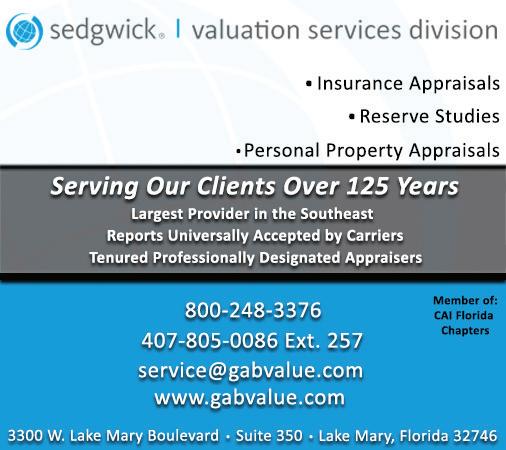

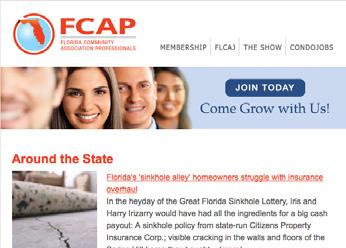




Truist Association Services
12485 28th Street N
St. Petersburg, FL 33716 727-549-1202 or 888-722-6669 www.Truist.com/ AssociationServices

Rick Carroll Insurance 2160 NE Dixie Highway
Jensen Beach, Florida 34958 800-290-3181 or 772-334-3181 www.rickcarroll.com
The Turner Insurance Advisor Group 2121 NE Coachman Road Clearwater, Florida 33765 www.turnergroupfl.com
INSURANCE VALUATIONS




















Herbie Wiles Insurance Agency
400 N. Ponce de Leon Boulevard St. Augustine, Florida 32084 800-997-1961 www.herbiewiles.com
Insuring over 100 FL condo associations and HOAs.

Expert Reserve Services Inc. 433 Silver Beach Ave., Suite 104 Daytona Beach, FL 32118 866-480-8236 www.expertreserveservices.com
Covering Florida's Insurance Valuation Needs
PUBLIC CLAIMS
INSURANCE ADJUSTERS
Five Star Claims Adjusting 2950 W. Cypress Creek Road, Suite 125 Fort Lauderdale, Florida 33309 561-677-9327
Travis@fsclaims.com onetapconnect.com/five starclaimsadjusting-travisbaldeo/
PUBLIC INSURANCE ADJUSTERS
Hunter Claims LLC 4613 N. Clark Avenue Tampa, Florida 33614 813-774-7634 www.hunterclaims.com RESERVE ANALYSIS





Brian W. Pariser, P.A. 9100 South Dadeland Boulevard
Datran One-Suite 1500 Miami, Florida 33156
305-670-7730
bwpserve@pariserpa.com
Condo and HOA Law & Mediation.

Gelfand & Arpe, P.A. 1555 Palm Beach Lakes Boulevard, Suite 1220 West Palm Beach, Florida 33401 561-655-6224
www.gelfandarpe.com





Siegfried Rivera 201 Alhambra Circle, 11th Floor Coral Gables, Florida 33134 800-737-1390
www.siegfriedrivera.com
Experience Personalized Professionalism.
Tripp Scott Law Firm 110 SE 6 Street Fort Lauderdale, Florida 33301
954-525-7500
www.trippscott.com
For over 50 years, Tripp Scott has served our community.





12350 SW 132 Court, Suite 114 Miami, Florida 33186
305-232-1579; 239-241-6499 www.alliedpropertygroup.net
Providing service to South Florida since 2003.














Qualified Property Management 5901 US Highway 19, Suite 7 New Port Richey, Florida 34652 877-869-9700
www.QualifiedProperty.com
Proudly Serving HOA, COA, Co-ops, Master Planned Comm. Assoc.




Sign up for our Newsletter fcapgroup.com/nl-sd 5523 W. Cypress Street, Suite 102 Tampa, Florida 33607 866-403-1588
www.RealManage.com Serving Orlando and Tampa Communities.
MAY Management Services, Inc.
5455 A1A South St. Augustine, Florida 32080
904-461-9708
www.maymgt.com
Over 20 years in Northeast Florida!

Sign up for our Newsletter fcapgroup.com/nl-sd

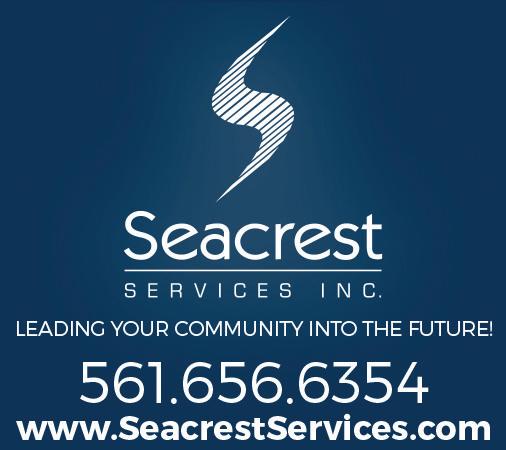

Sign up for our Newsletter fcapgroup.com/nl-sd
www.towerspropertymgmt.com

fcapgroup.com/ flcaj/flcaj-articles Read FLCAJ on the go
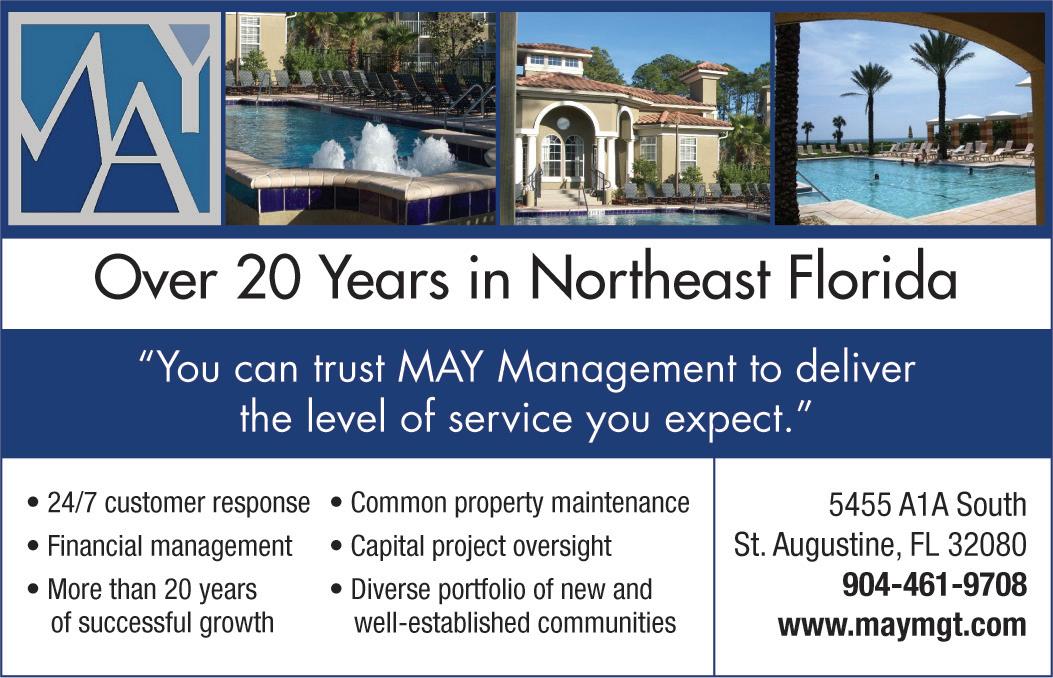

ACCESS CONTROL, SECURITY AND CUSTOM GATE AUTOMATION
Hands Free Security: 239-351-2871; info@handsfreellc. com; www.handsfreellc.com
Smart Entry Systems: 626-213-7557; www.SmartEntrySystems.com; sales@SmartEntrySystems.com
AIR DUCT CLEANING
Air Duct Aseptics
Air Duct & Dryer Exhaust Cleaning, Mold Testing, Free Inspection 888-707-7763 www.adaflorida.com
ALARM MONITORING

ALUMINUM RAILING
Mullets Aluminum: 941-371-3502; nate@mulletsaluminum.com; www.mulletsaluminum.com
ARCHITECTURE/FORENSICS
RGA Design: 813-226-2220; bhenry@rga-design.com; www.rga-design.com
ASPHALT REPAIR/ REJUVENATION
Asphalt Restoration Technology: 800-254-4PDC (4732); www.asphaltnews.com.
BALCONY INSPECTIONS
Howard J. Miller, P.E., Inc.: Professional Inspections; Reports; Contract Administration; 561-392-2326.






Promar Building Services LLC: Alfredo Amador; 561-598-4549; info@promarbuilding.com
CONCRETE RESTORATION PROJECT MANAGEMENT
Daniello Companies: 888-370-4333; www.concreterepairing.net.

Hypower Electrical & Utility Contractor 888-978-9300; www.hypowerinc.com
ELEVATOR SERVICE/REPAIRS
Connections Elevator: Elevator maintenance agreements, repairs and modernizations; 954-792-1234; www.ConnectionsElevator.com.
ENGINEERS
Chalaire & Associates, Inc.: 561-848-7055; www.chalaire andassociates.com.
Consult Engineering, Inc: 941-206-3000; www.consultengineering.com.
Howard J. Miller, P.E., Inc.: Reports; Contract Administration; 561-392-2326.

Sign up for our Newsletter fcapgroup.com/nl-sd

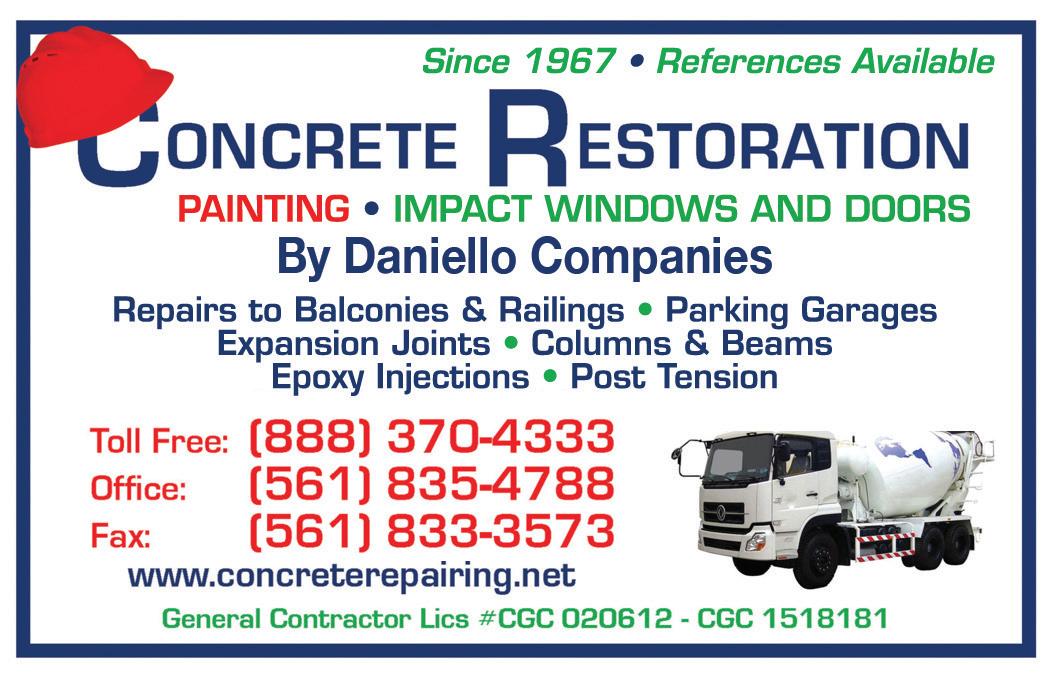
NV5: 954-495-2112; nv5.com
PEGroup Consulting Engineers, Inc.: 800-698-2818; 305-655-1115; www.pegroup.com.
Simpler Engineers: 954-3992075; simplerengineer.com

Swaysland Professional Engineering Consultants (SPEC): 954-473-0043; 888-264-7732. FENCING AND GATES

FIRE ALARM SYSTEMS
Bass United Fire & Security Systems, Inc.: 954-785-7800; www.bassunited.com.


GENERAL CONTRACTORS
Hartman & Sons Construction, Inc.: 407-699-4549; fax: 407-6990919; Serving Central FL
INTERNET/TELEVISION/ VOICE SERVICES
Blue Stream: 954-753-0100; www.mybluestream.com
Comcast: 800-934-6489; www. xfinity.com
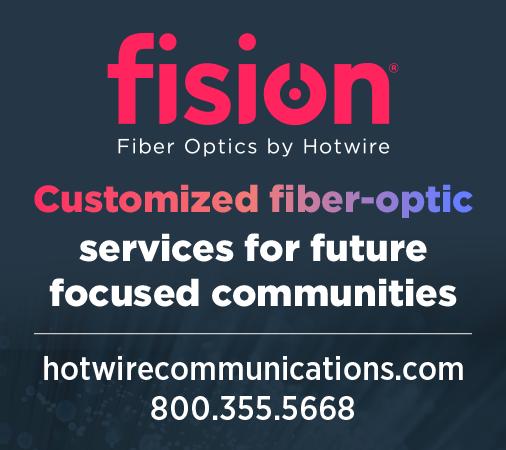
Summit Broadband: 407-221-2777; bulk@summitbb.com; www.summitbb.com/community

Commercial Laundries: 786982-7729; kendal@ciifl.com; www.commerciallaundries.com

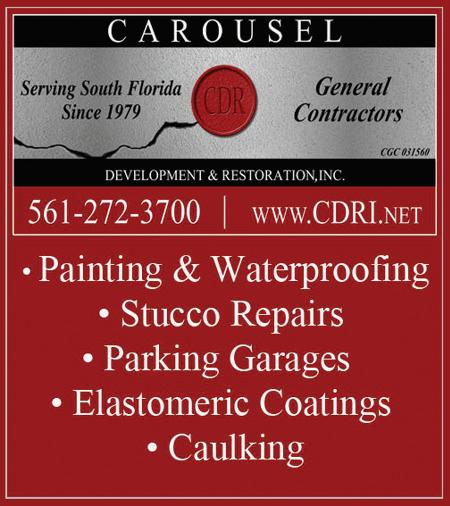


Promar Building Services LLC: Alfredo Amador; 561-598-4549; info@promarbuilding.com

Sign



ROOF CONSULTING

Mike Douglass Trenchless Technologies: 877-426-8660; mikedouglassplumbing.com
ROOF COATINGS
Polo International: 954-7825851; www.polo14.com

up for our Newsletter fcapgroup.com/nl-sd

Alliance Consulting & Testing: 888-777-7001; billharris@roofexpert.com; roofexpert.com
ROOF MANAGEMENT & CONSULTING


Dan Tennis Roofing: 954-4857778; info@dantennisroofing.com; www.dantennisroofing.com

Pecora Corporation: 800-5236688; freemana@pecora.com

Ramco Protective: 888-3989700; www.ramcoprotective.com.

Southern Chute: 954-475-9191; toll free 866-475-9191; fax 954475-9476; www.southernchute.com. WATER, SEWER AND DRAINAGE—INSPECTION AND REPAIRS

Hinterland Group: 561-6403503; hinterlandgroup.com WATERPROOFING




TRADE SHOW CAI Central Florida: exdir@caicf.org; 407-913-3777; caicf.org TRASH CHUTE CLEANING AND REPAIR US ChuteLining: 800-504-5108; www.uschutelining.com

WINDOWS AND SHUTTERS
First Alert: 561-210-5944; www. firstalerthurricaneshutters.com

Sign up for our Newsletter fcapgroup.com/nl-sd



